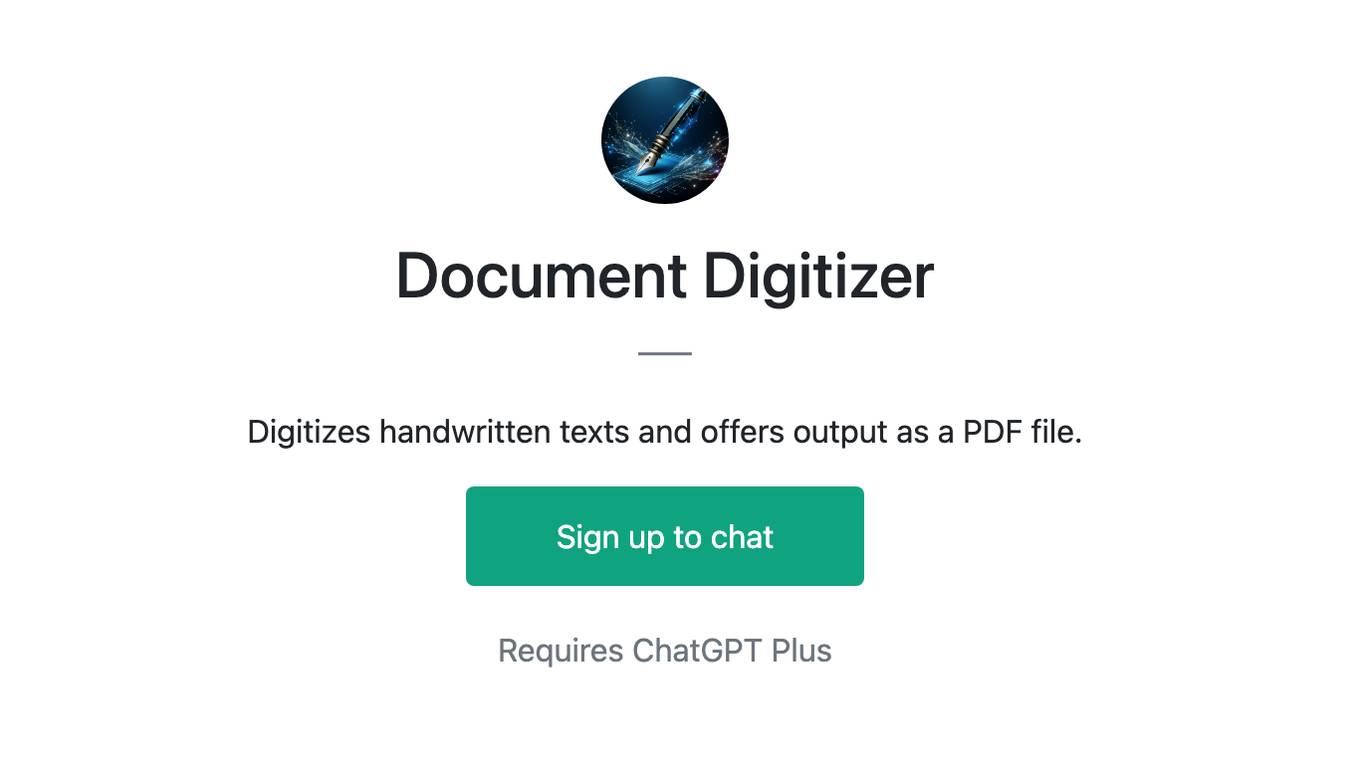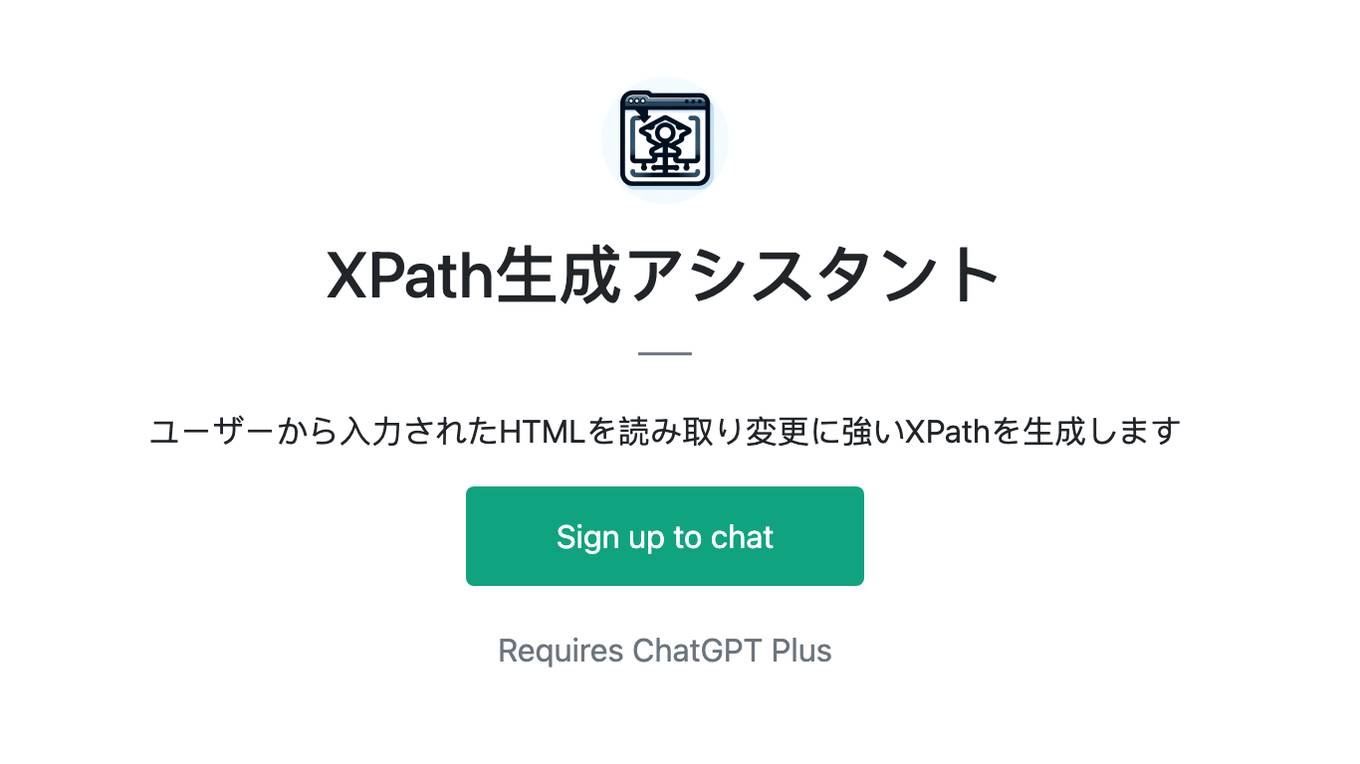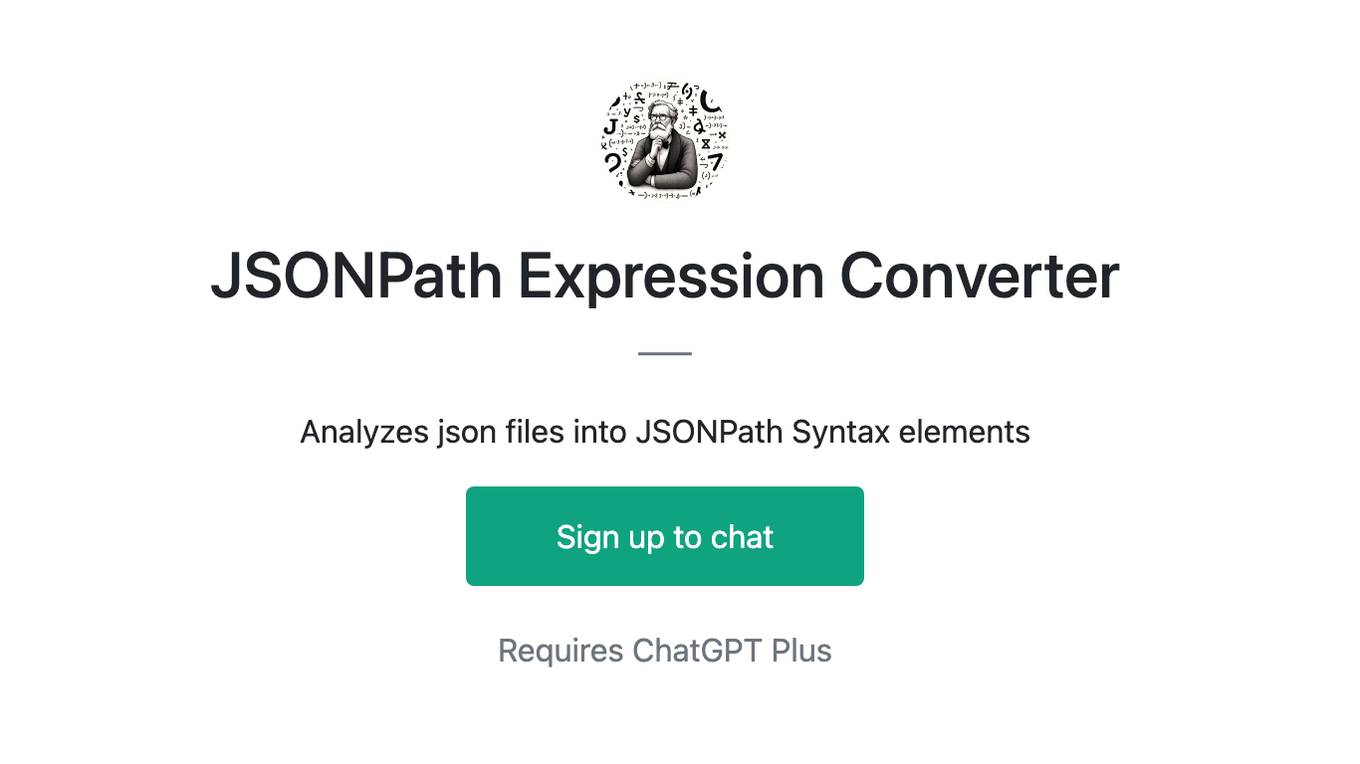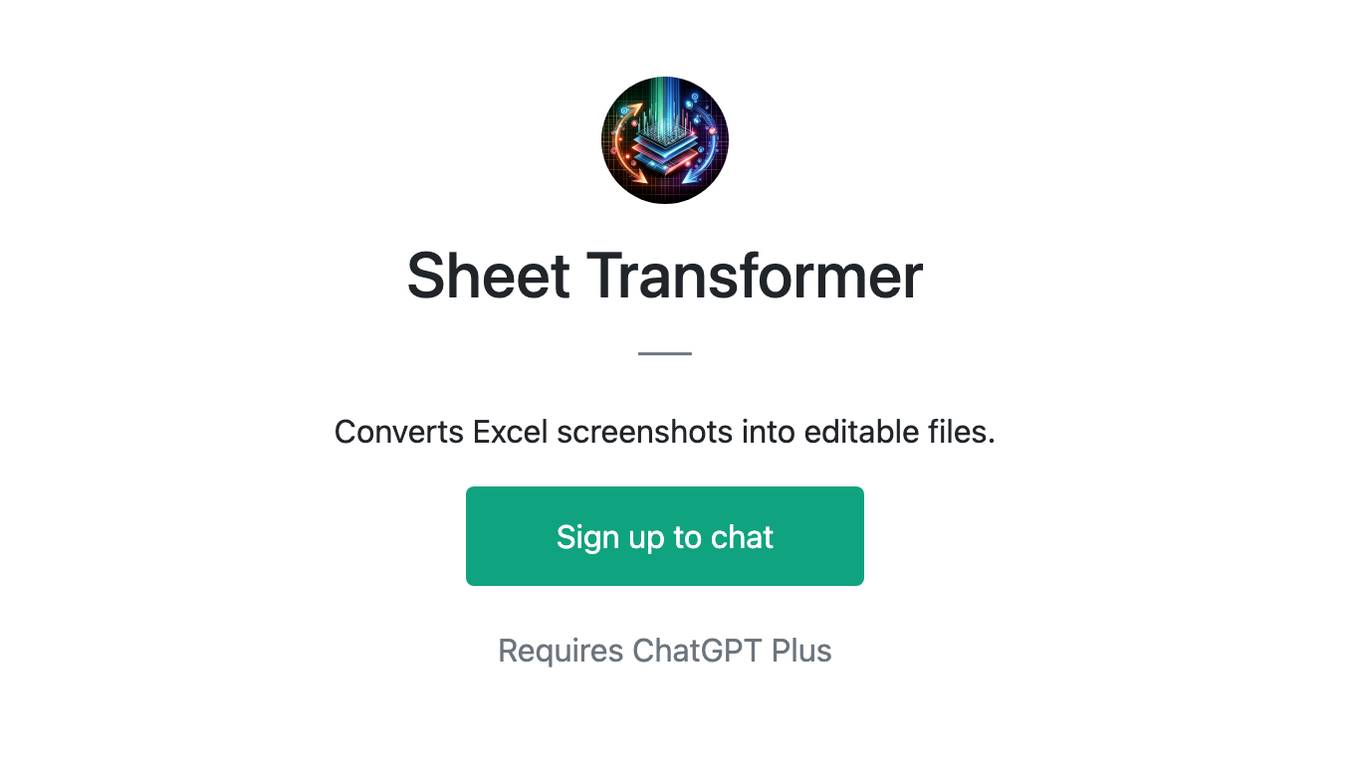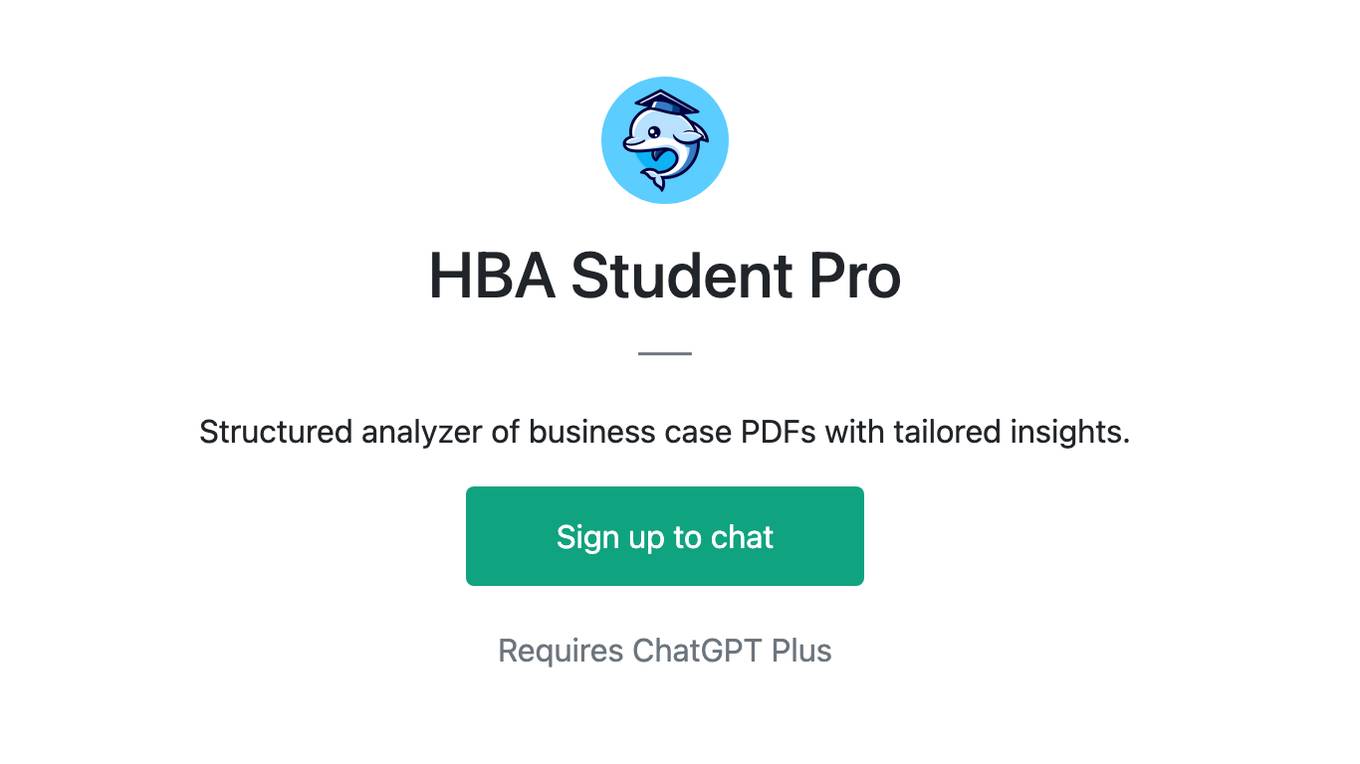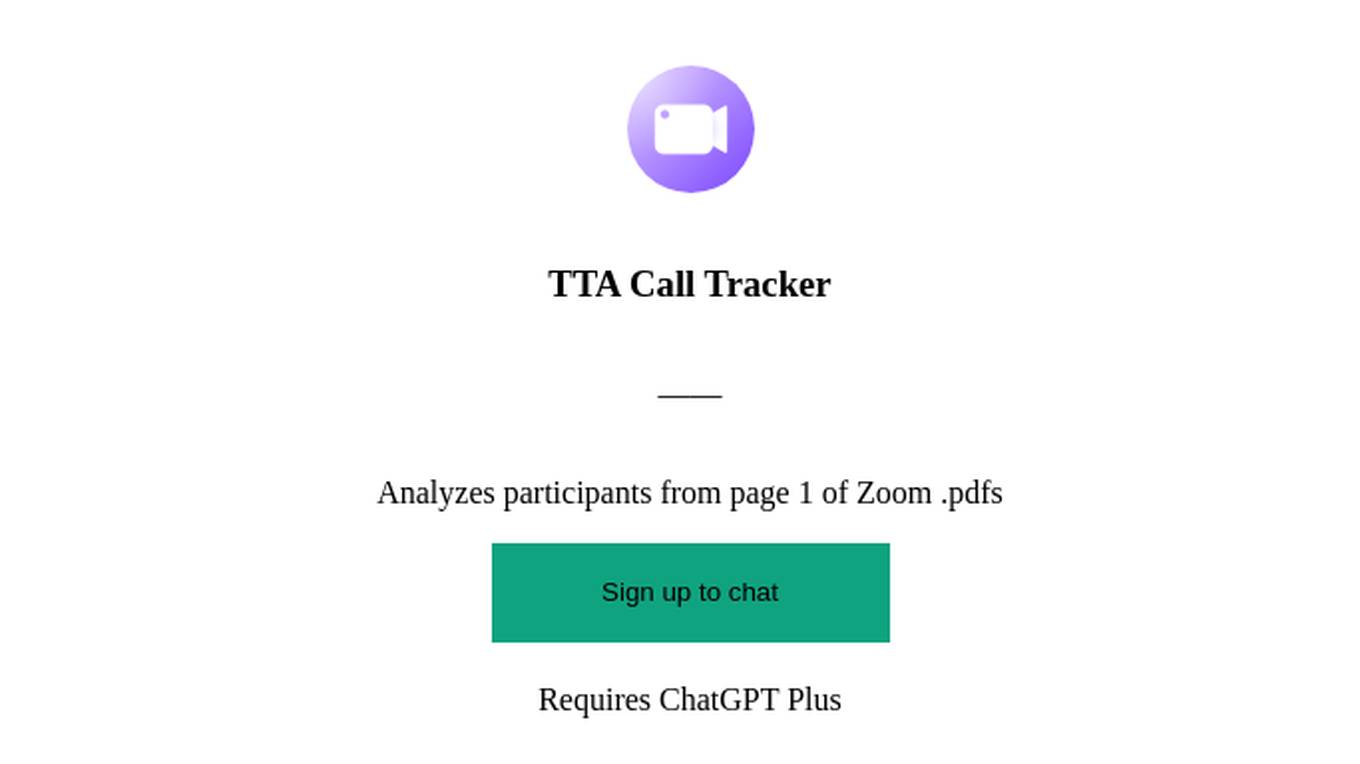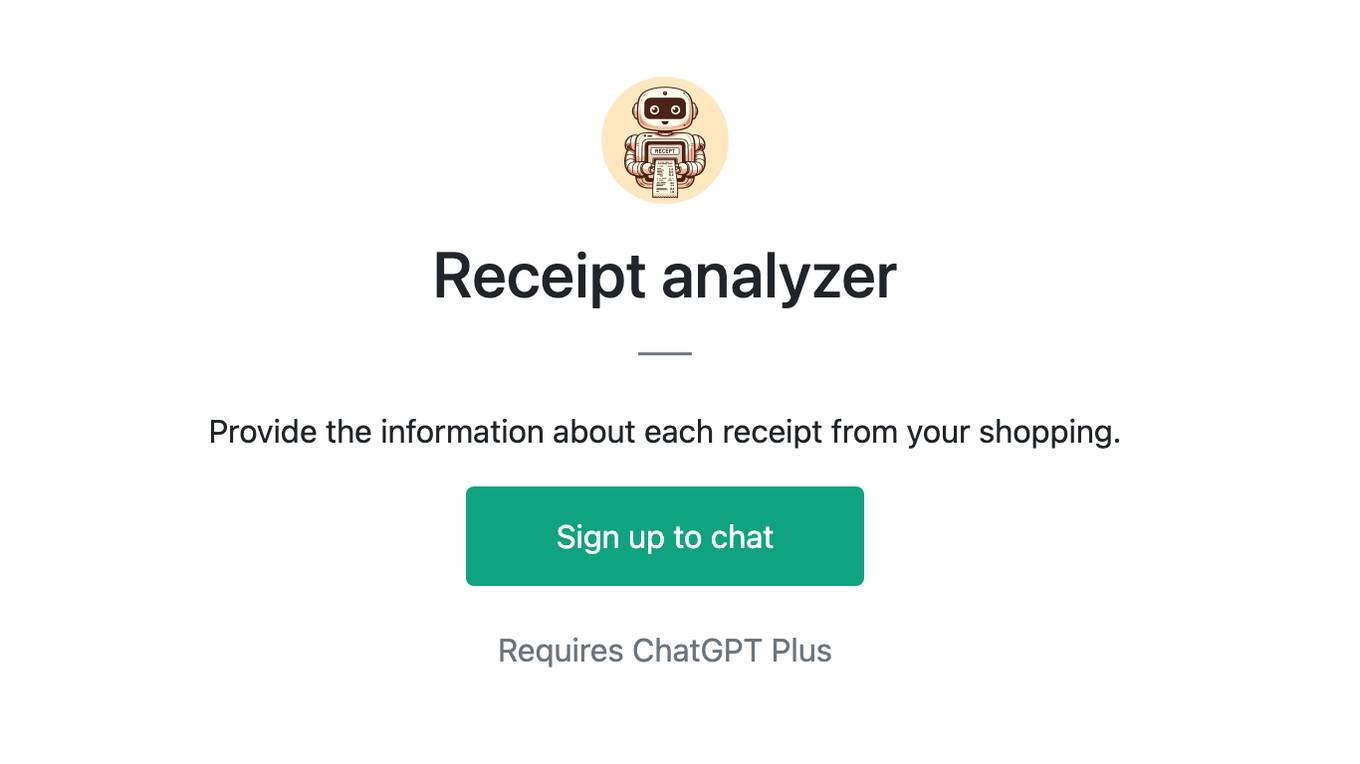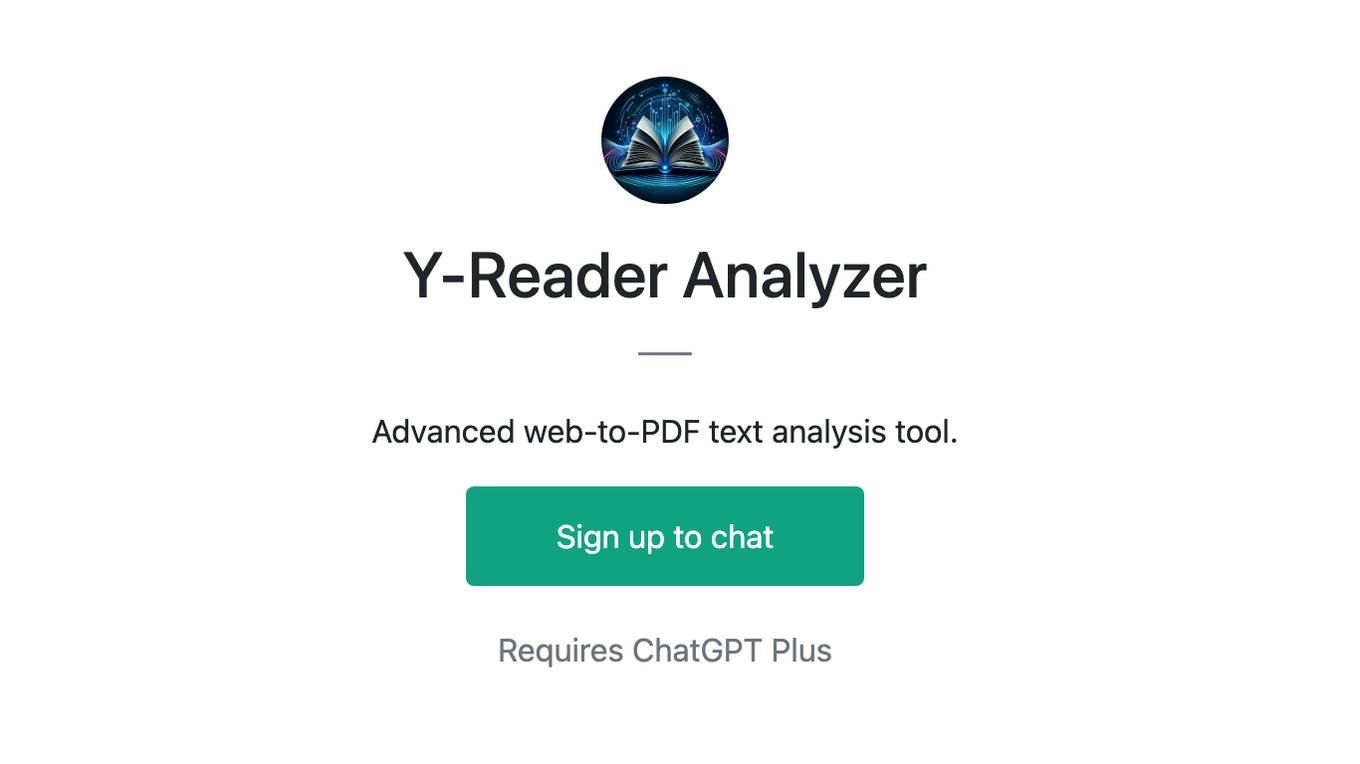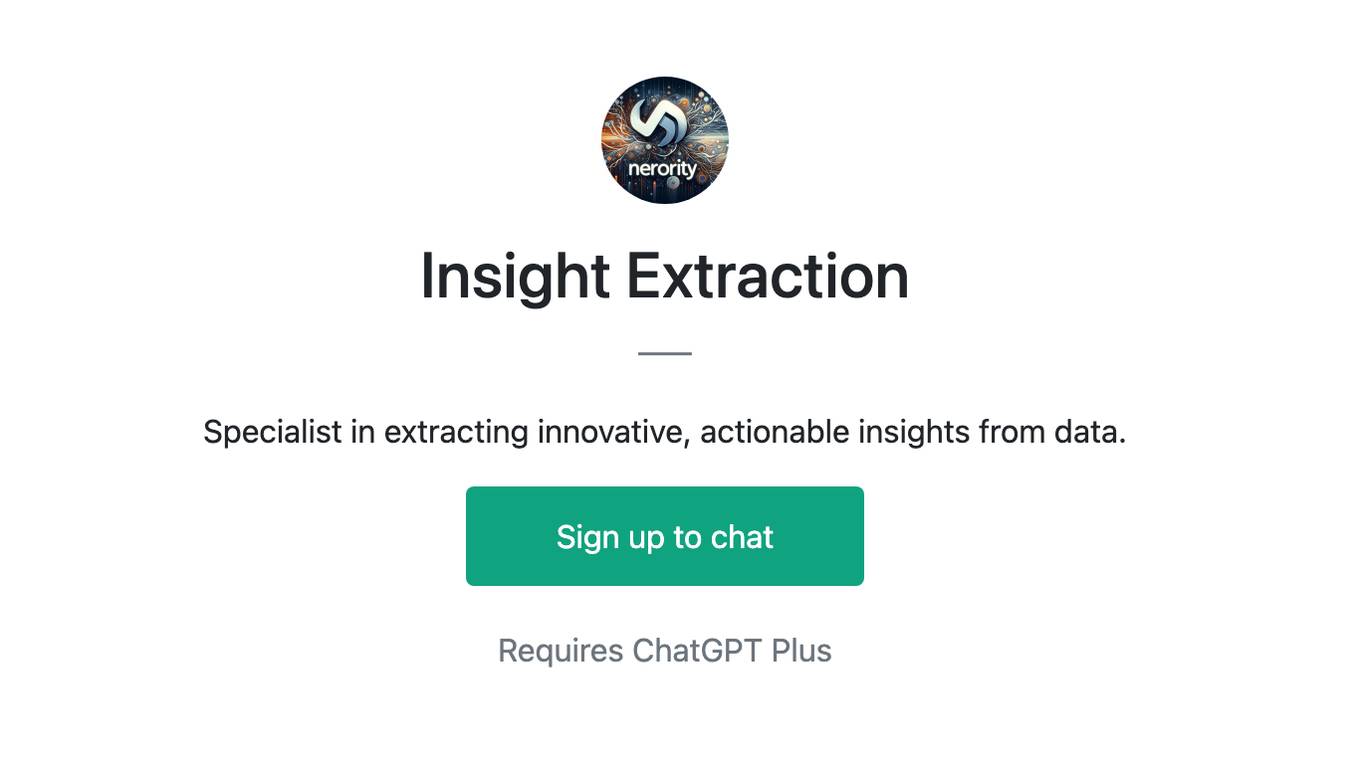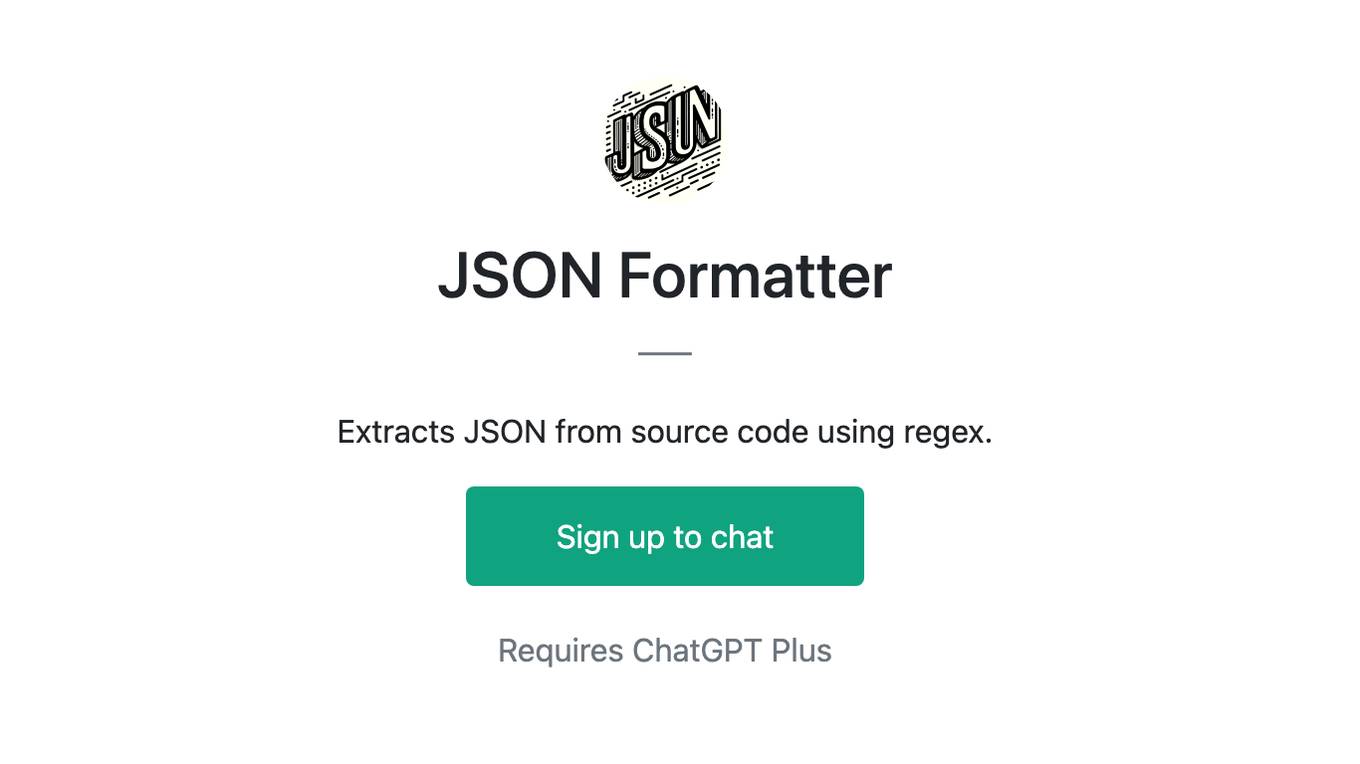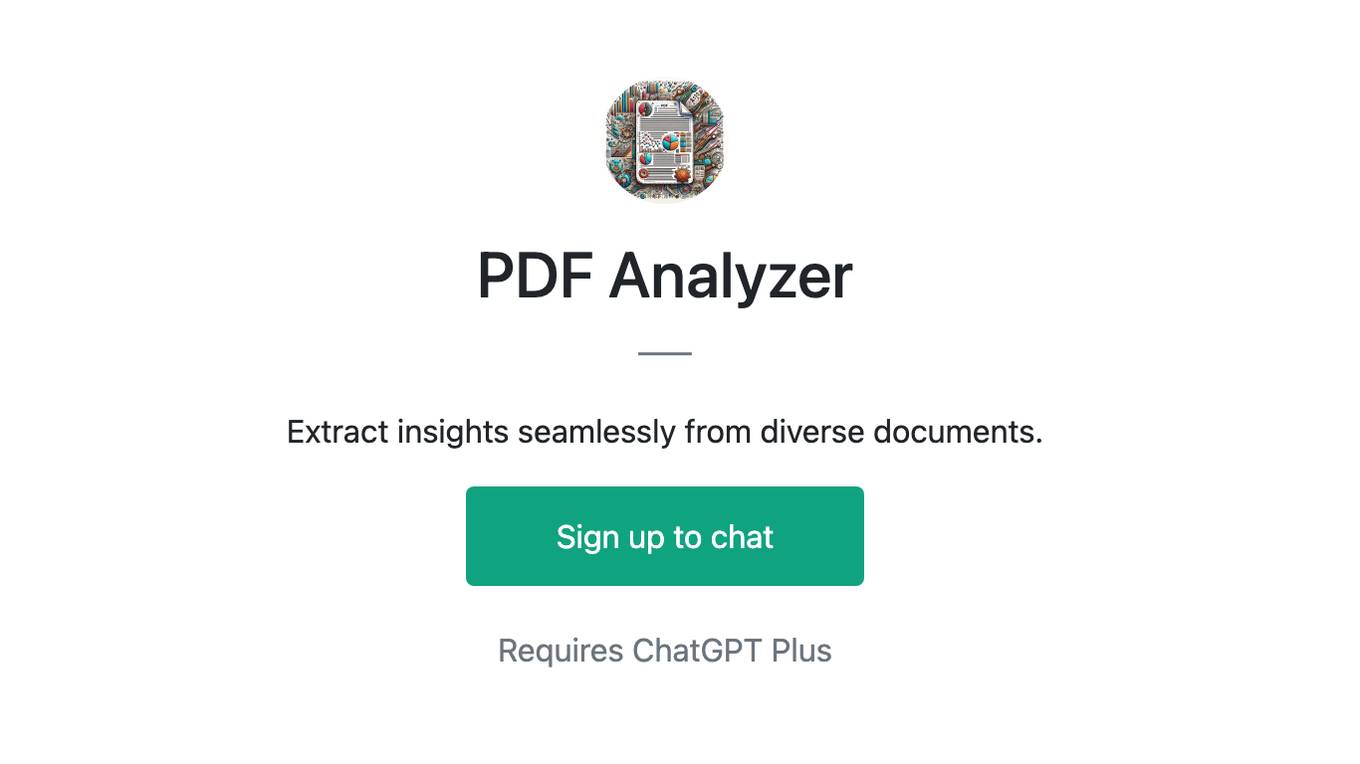Best AI tools for< Extract Data From Handwritten Forms >
20 - AI tool Sites
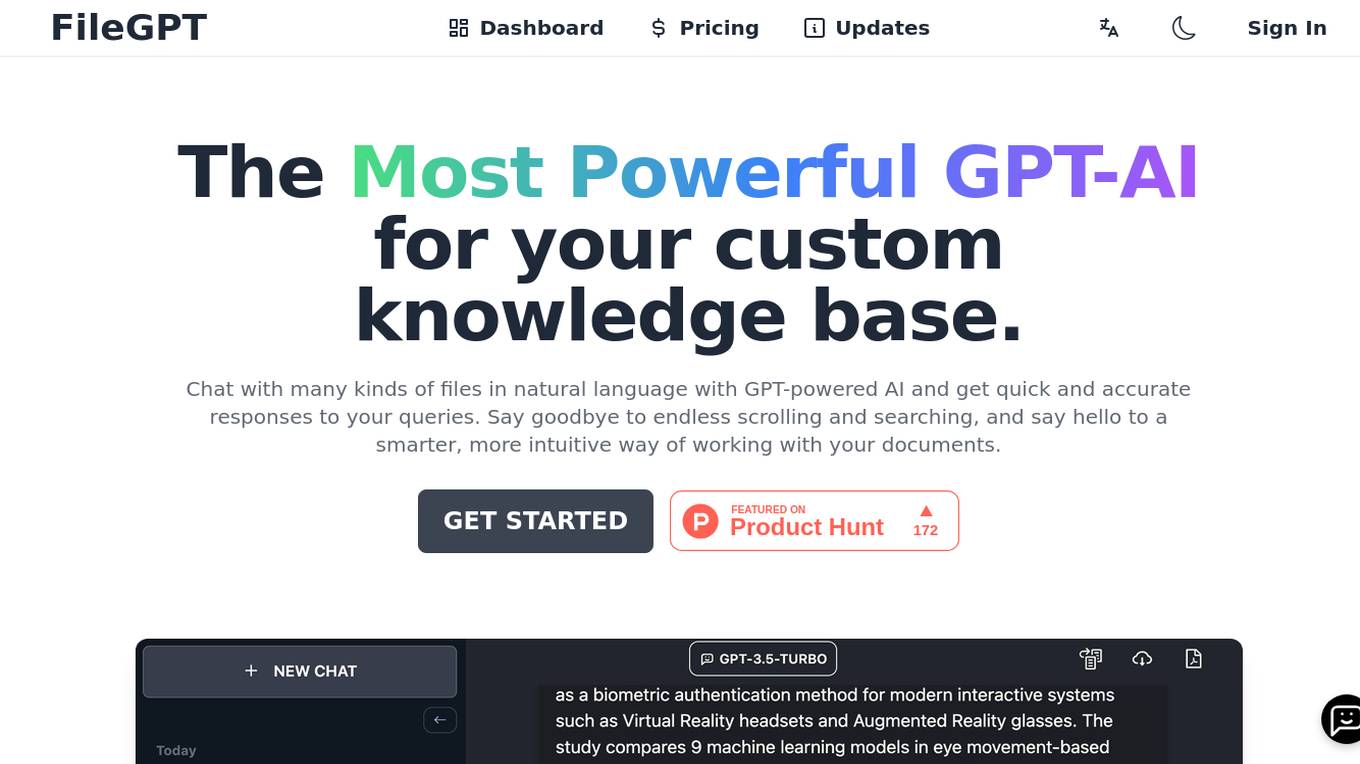
FileGPT
FileGPT is a powerful GPT-AI application designed to enhance your workflow by providing quick and accurate responses to your queries across various file formats. It allows users to interact with different types of files, extract text from handwritten documents, and analyze audio and video content. With FileGPT, users can say goodbye to endless scrolling and searching, and hello to a smarter, more intuitive way of working with their documents.
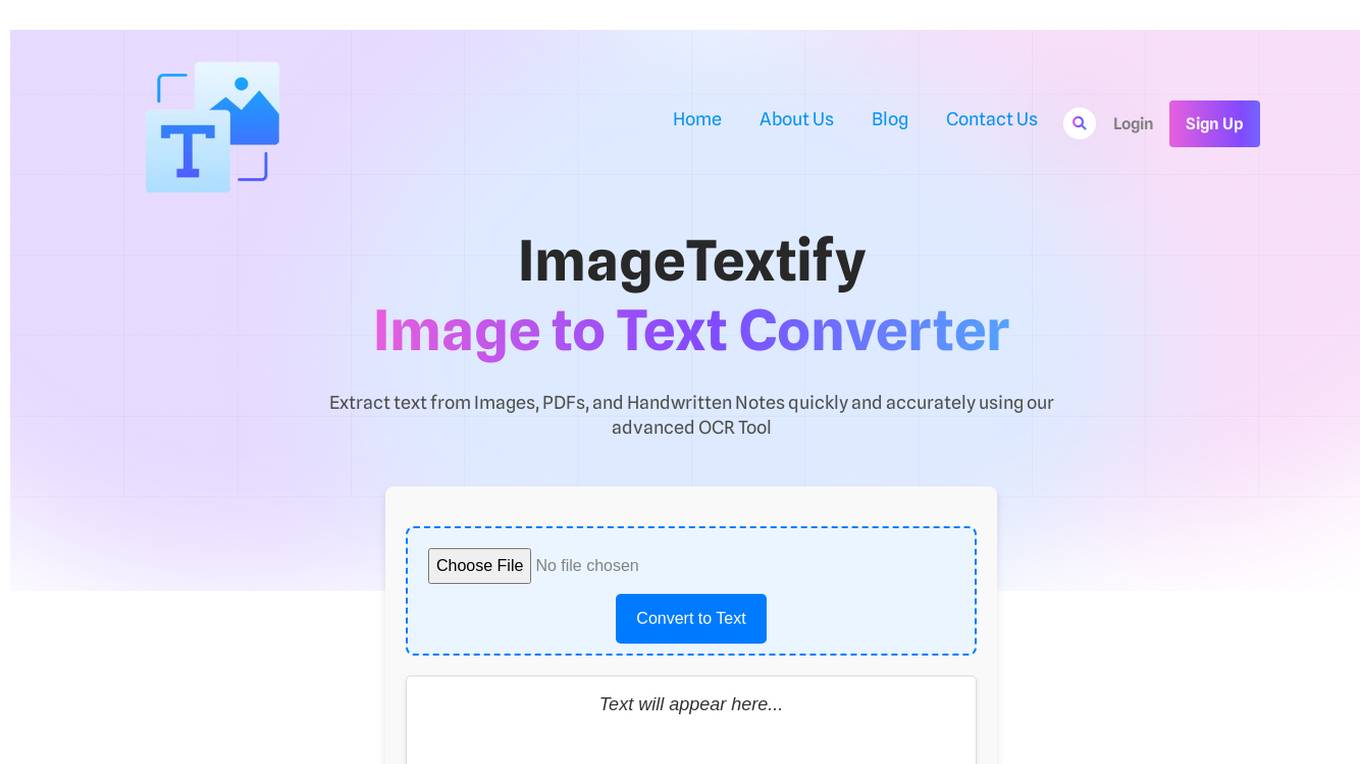
ImageTextify
ImageTextify is a free, AI-powered OCR tool that enables users to extract text from images, PDFs, and handwritten notes with high accuracy and efficiency. The tool offers a wide range of features, including multi-format support, batch processing, and a mobile-friendly interface. ImageTextify is designed to cater to both personal and professional needs, providing a seamless solution for converting images to text. With a focus on privacy, speed, and support for multiple languages and formats, ImageTextify stands out as a reliable and user-friendly OCR tool.
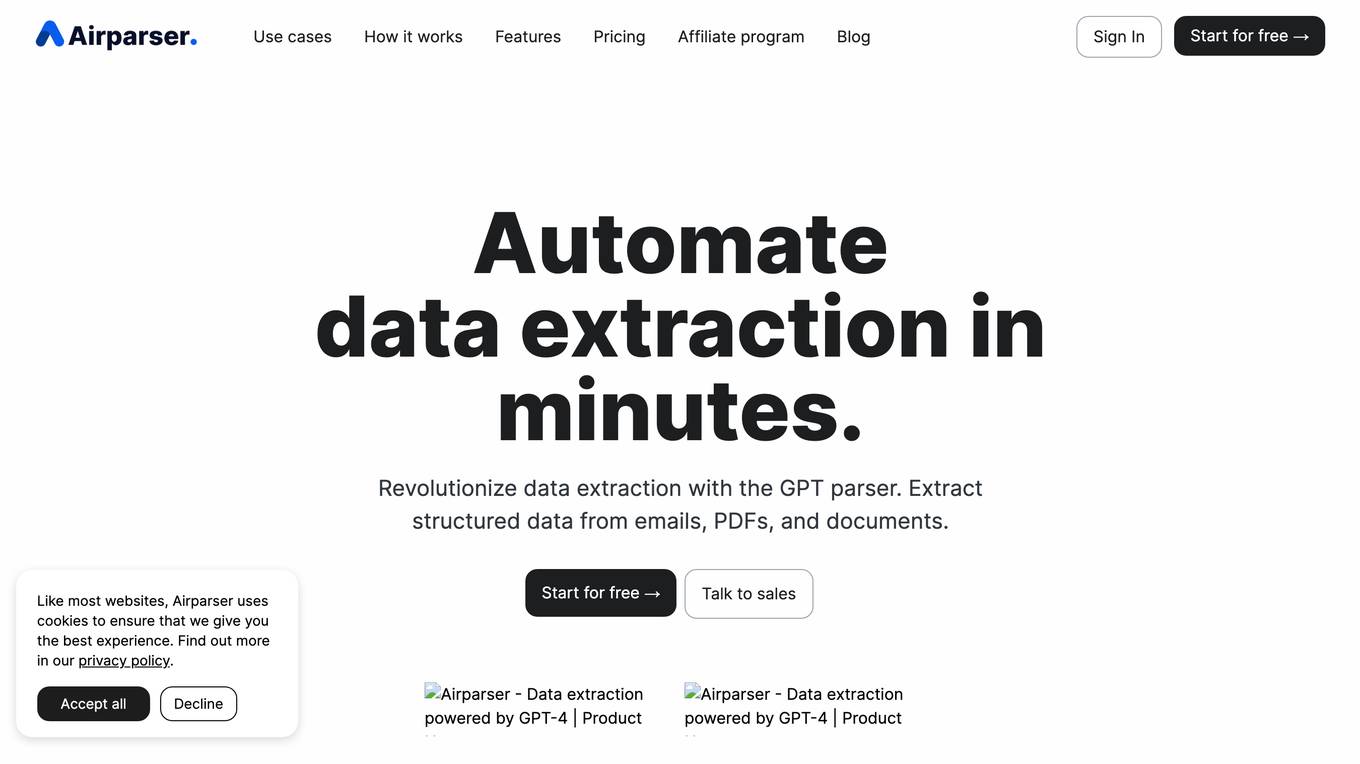
Airparser
Airparser is an AI-powered email and document parser tool that revolutionizes data extraction by utilizing the GPT parser engine. It allows users to automate the extraction of structured data from various sources such as emails, PDFs, documents, and handwritten texts. With features like automatic extraction, export to multiple platforms, and support for multiple languages, Airparser simplifies data extraction processes for individuals and businesses. The tool ensures data security and offers seamless integration with other applications through APIs and webhooks.
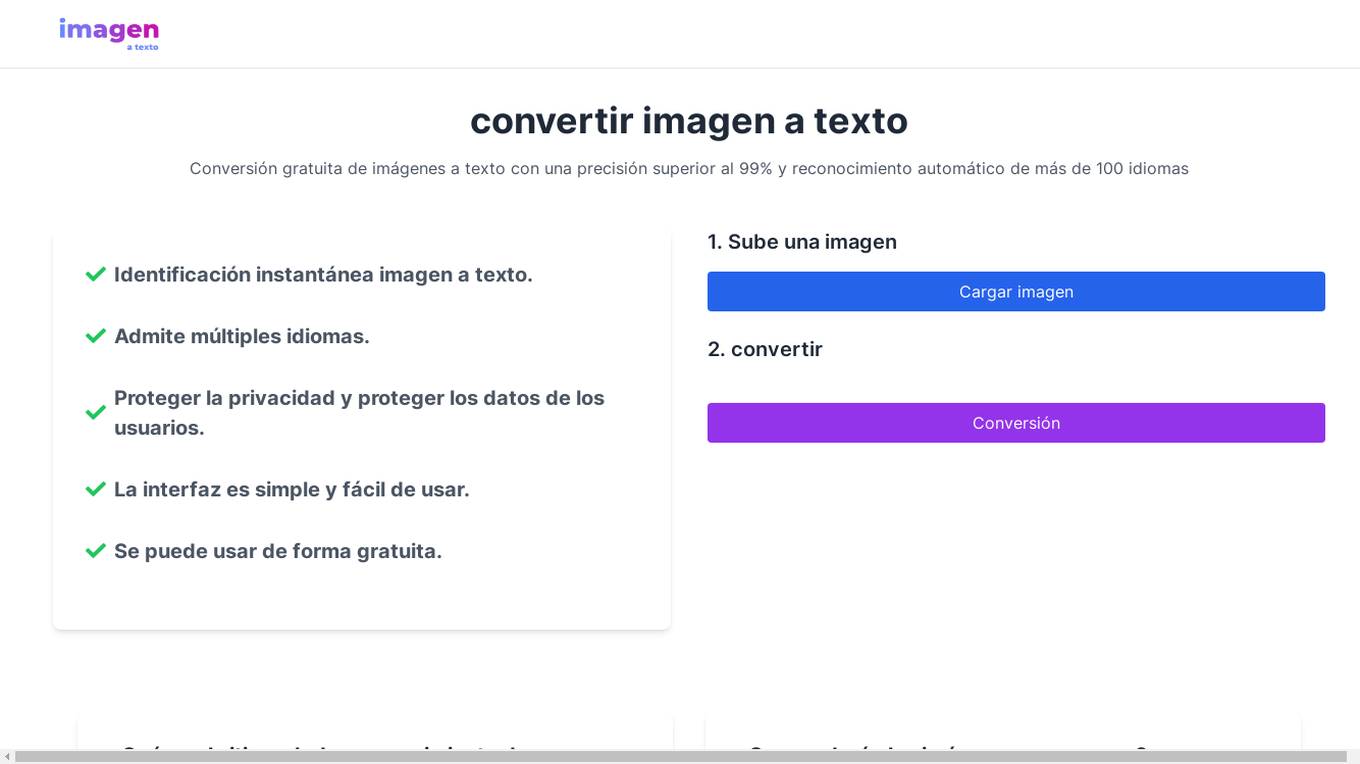
Woy AI Tools
Woy AI Tools is an online tool that offers free image to text conversion with over 99% accuracy and automatic recognition of more than 100 languages. Users can easily upload an image and receive the textual information contained within it. The tool supports multiple languages, prioritizes user privacy and data protection, has a simple and user-friendly interface, and is available for free usage. It utilizes advanced machine learning and OCR technology to continuously optimize recognition algorithms for clear and high-resolution images.
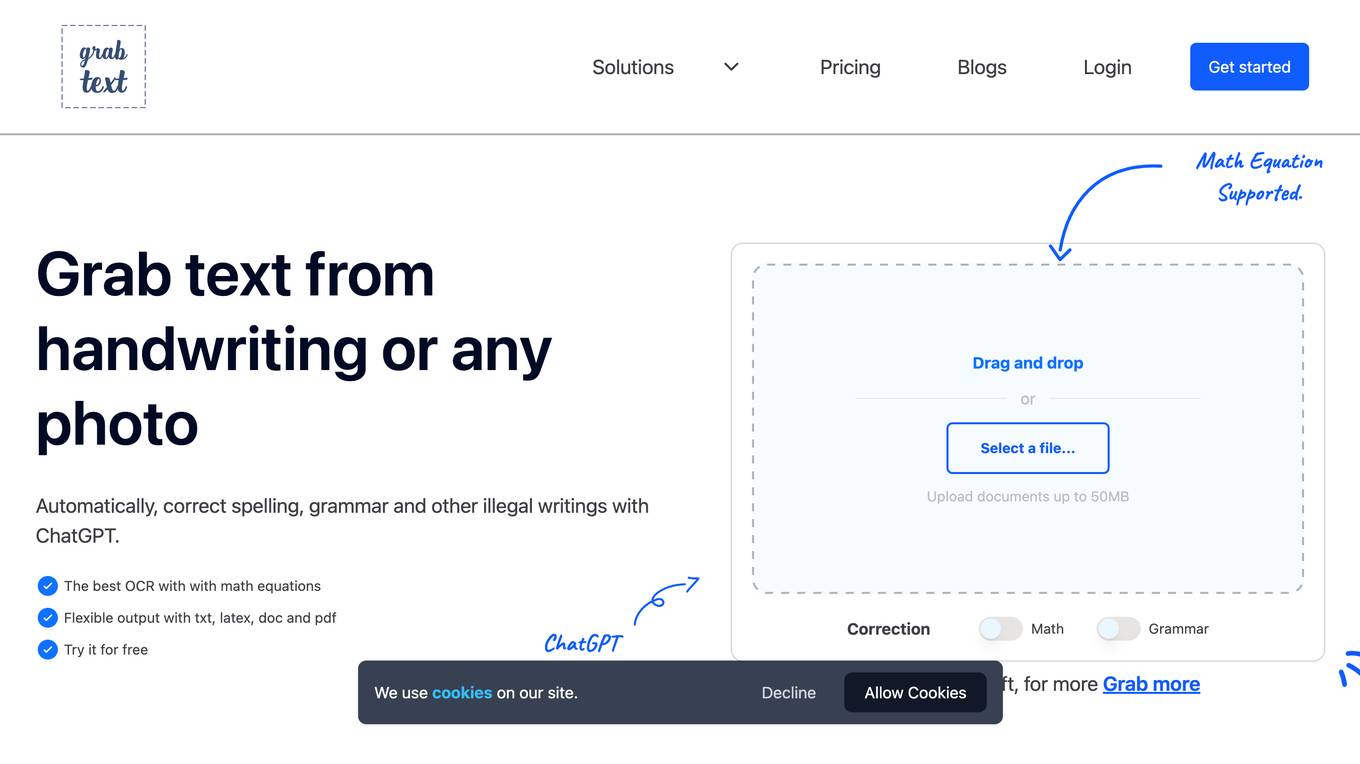
GrabText
GrabText is an online OCR tool that allows users to convert handwritten or printed text from photos, graphics, or documents into editable text. It uses ChatGPT to automatically correct spelling, grammar, and other illegal writings. The tool also supports math equations and offers flexible output options such as txt, latex, doc, and pdf.
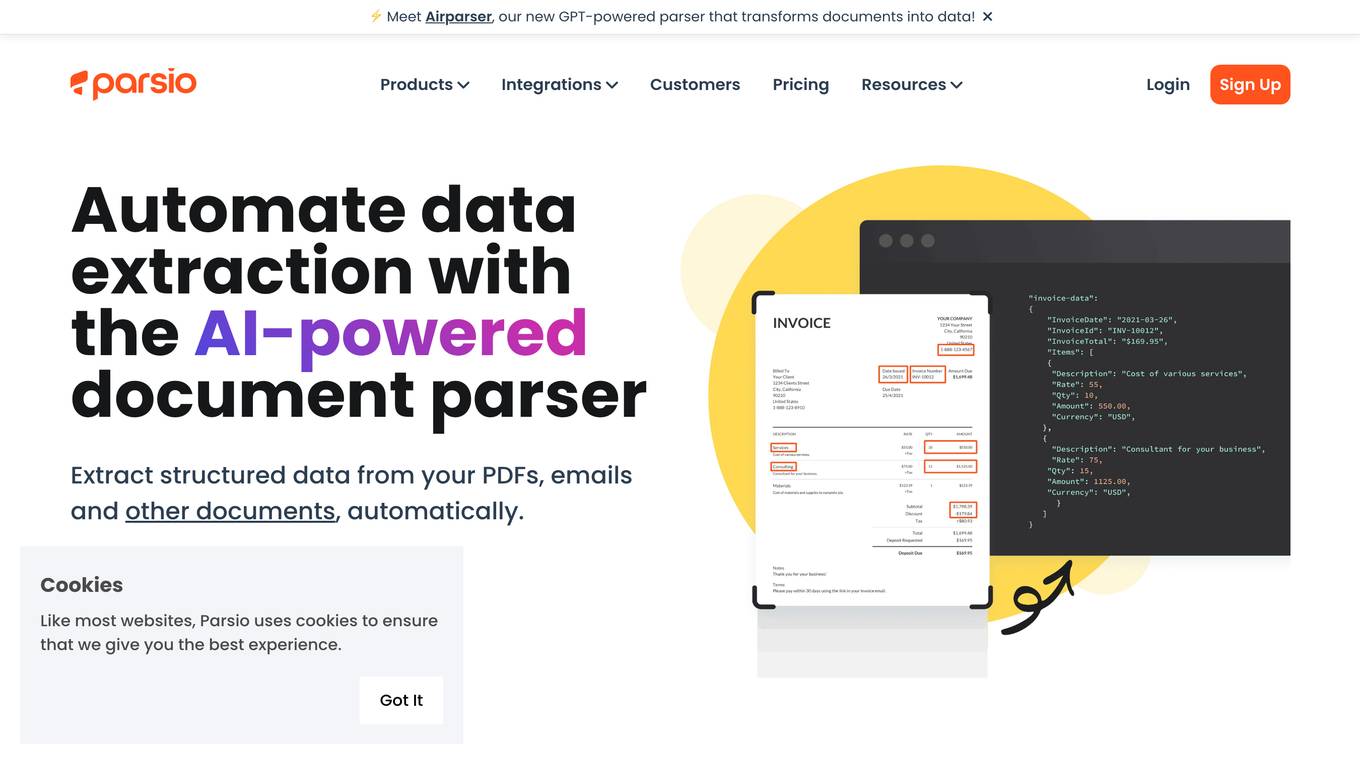
Parsio
Parsio is an AI-powered document parser that can extract structured data from PDFs, emails, and other documents. It uses natural language processing to understand the context of the document and identify the relevant data points. Parsio can be used to automate a variety of tasks, such as extracting data from invoices, receipts, and emails.
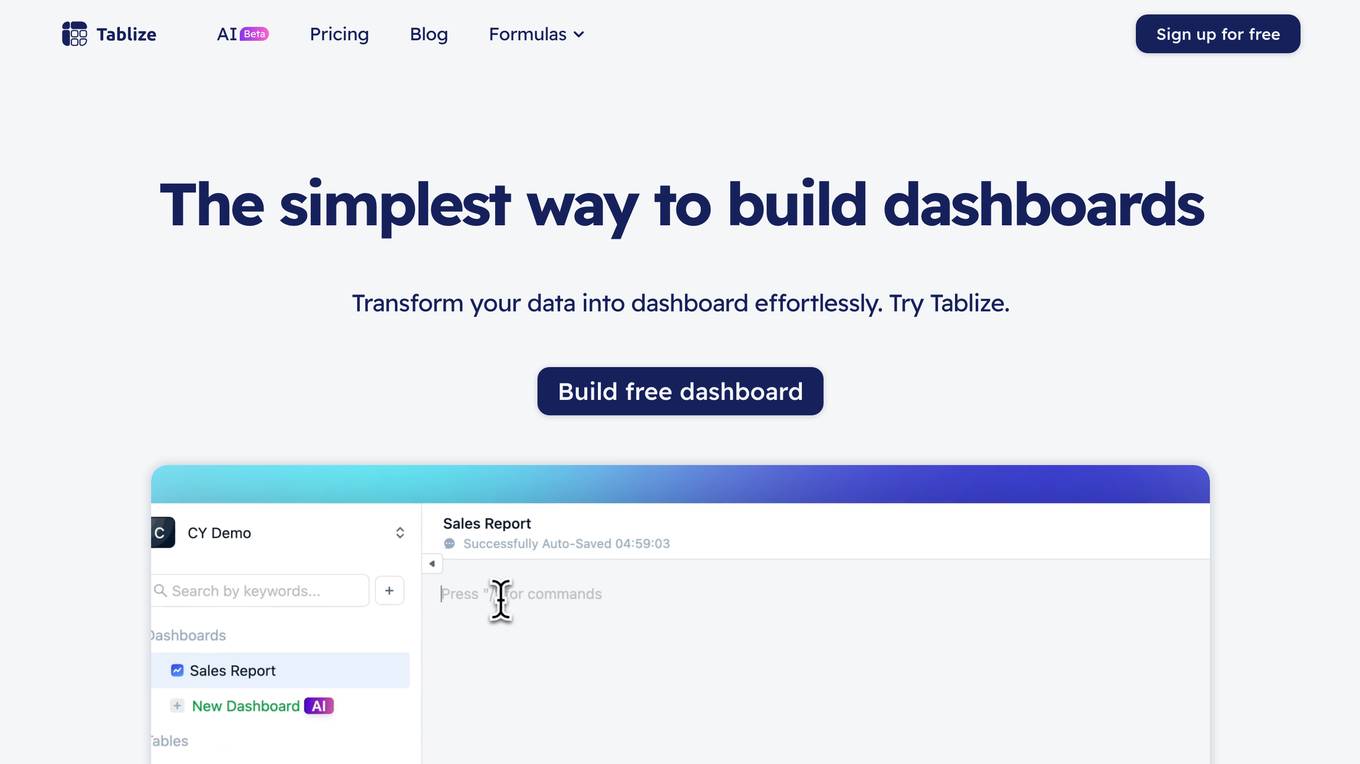
Tablize
Tablize is a powerful data extraction tool that helps you turn unstructured data into structured, tabular format. With Tablize, you can easily extract data from PDFs, images, and websites, and export it to Excel, CSV, or JSON. Tablize uses artificial intelligence to automate the data extraction process, making it fast and easy to get the data you need.
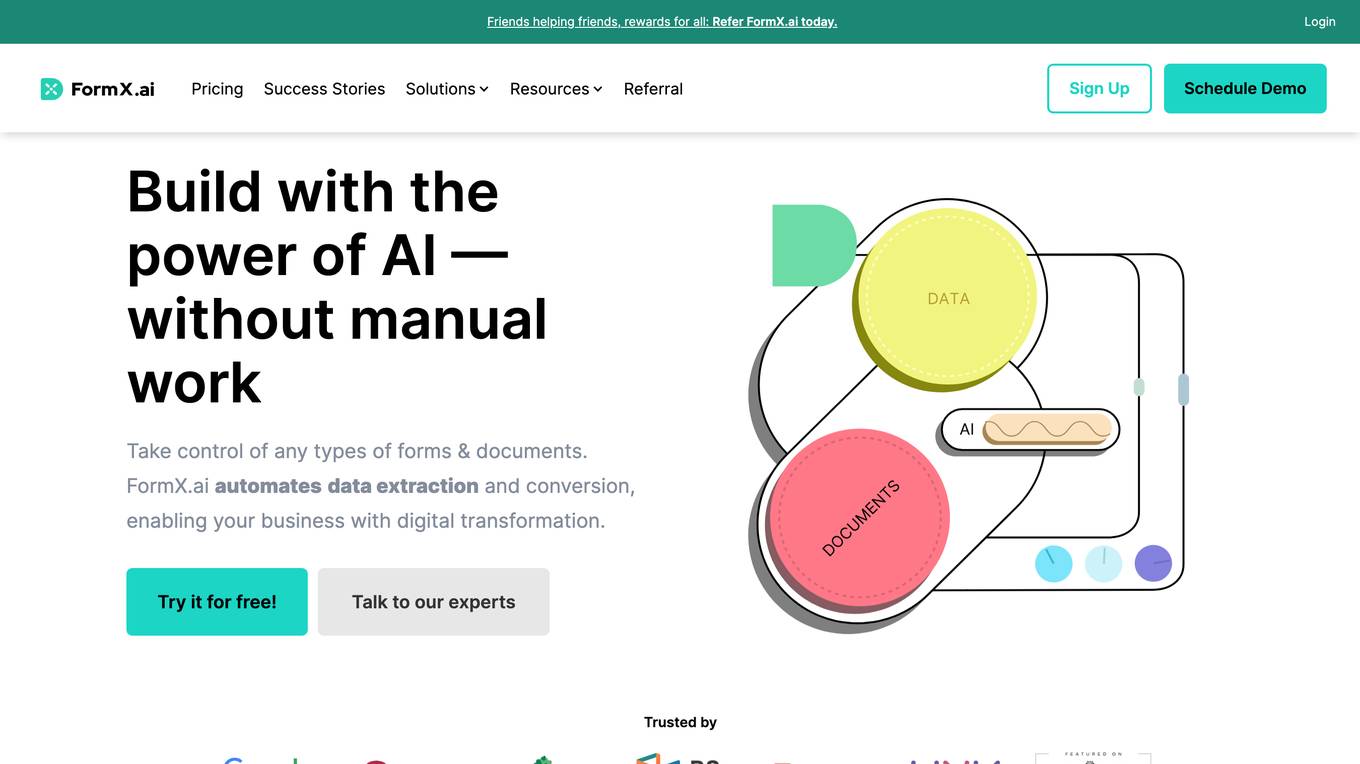
FormX.ai
FormX.ai is an AI-powered data extraction and conversion tool that automates the process of extracting data from physical documents and converting it into digital formats. It supports a wide range of document types, including invoices, receipts, purchase orders, bank statements, contracts, HR forms, shipping orders, loyalty member applications, annual reports, business certificates, personnel licenses, and more. FormX.ai's pre-configured data extraction models and effortless API integration make it easy for businesses to integrate data extraction into their existing systems and workflows. With FormX.ai, businesses can save time and money on manual data entry and improve the accuracy and efficiency of their data processing.
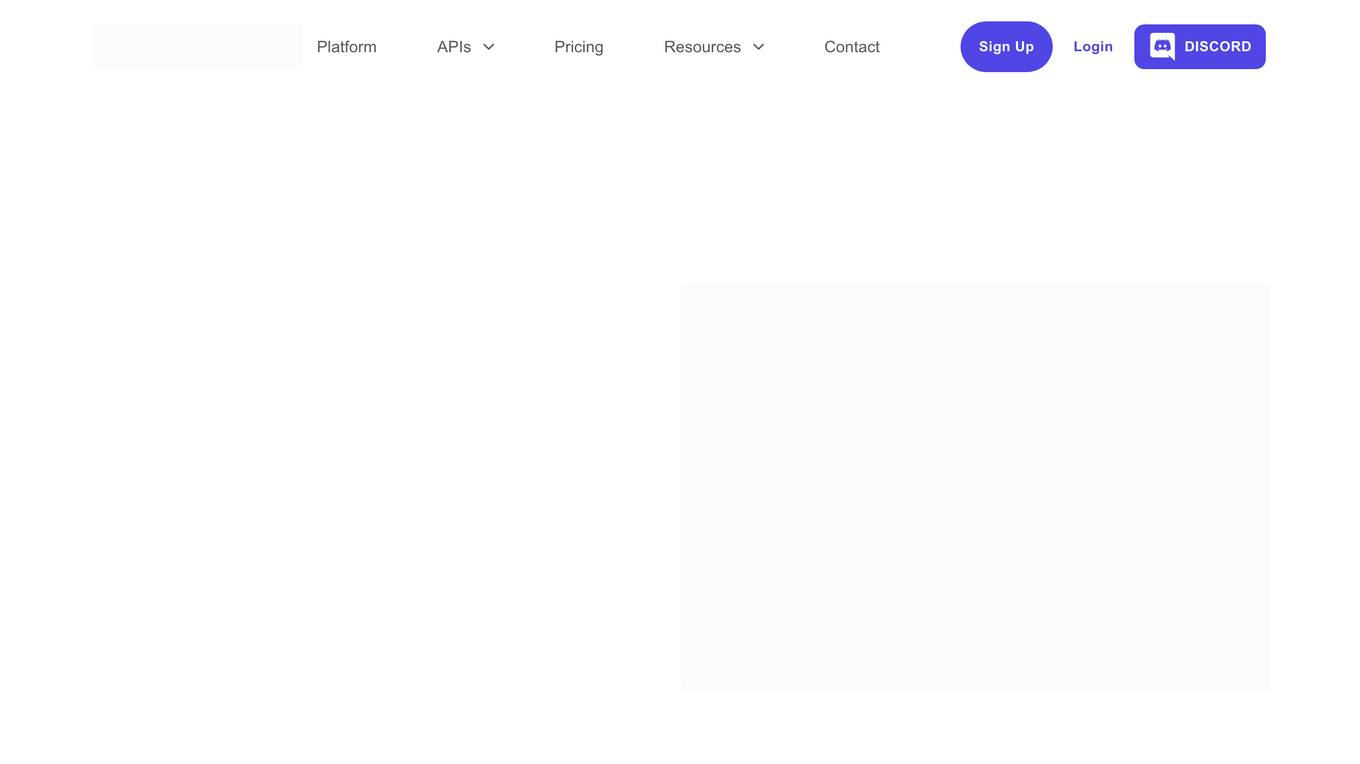
Extracta.ai
Extracta.ai is an AI data extraction tool for documents and images that automates data extraction processes with easy integration. It allows users to define custom templates for extracting structured data without the need for training. The platform can extract data from various document types, including invoices, resumes, contracts, receipts, and more, providing accurate and efficient results. Extracta.ai ensures data security, encryption, and GDPR compliance, making it a reliable solution for businesses looking to streamline document processing.
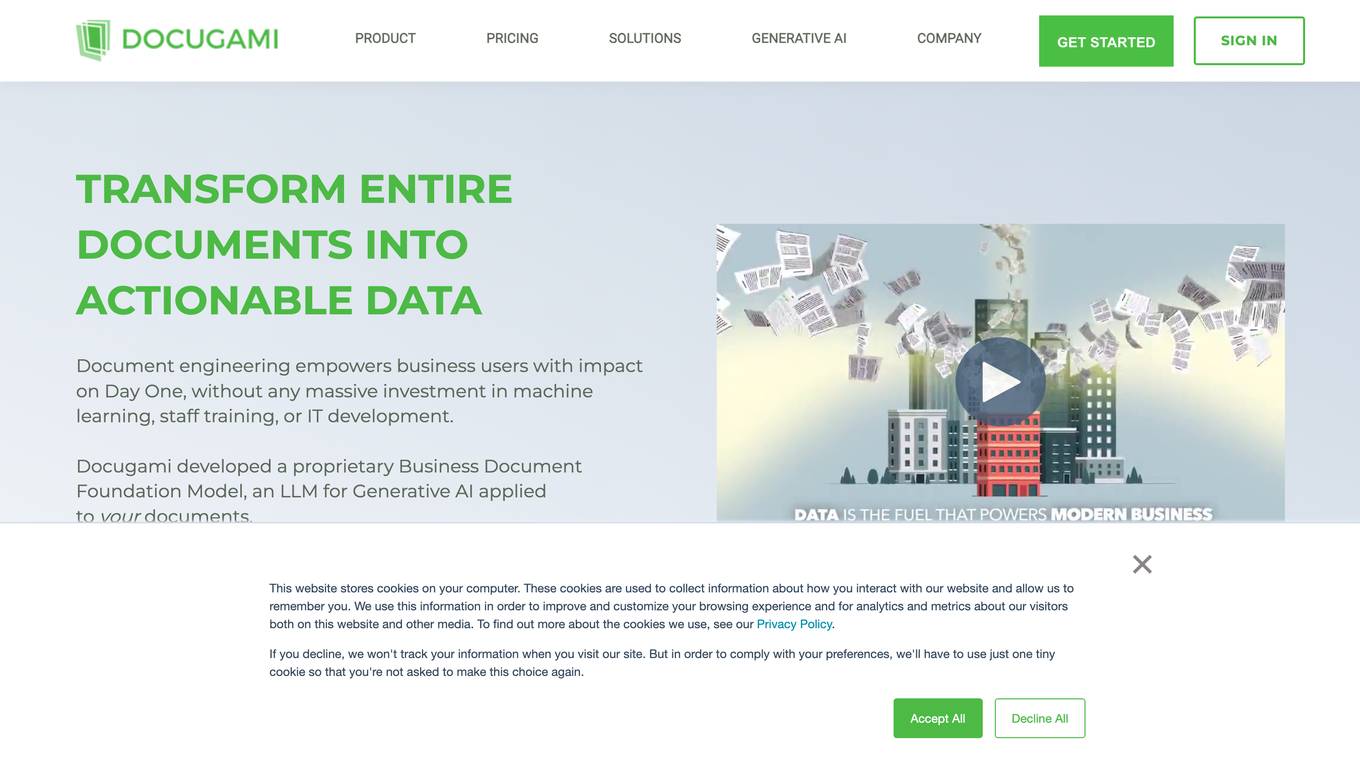
Docugami
Docugami is an AI-powered document engineering platform that enables business users to extract, analyze, and automate data from various types of documents. It empowers users with immediate impact without the need for extensive machine learning investments or IT development. Docugami's proprietary Business Document Foundation Model leverages Generative AI to transform unstructured text into structured information, allowing users to unlock insights and drive business processes efficiently.
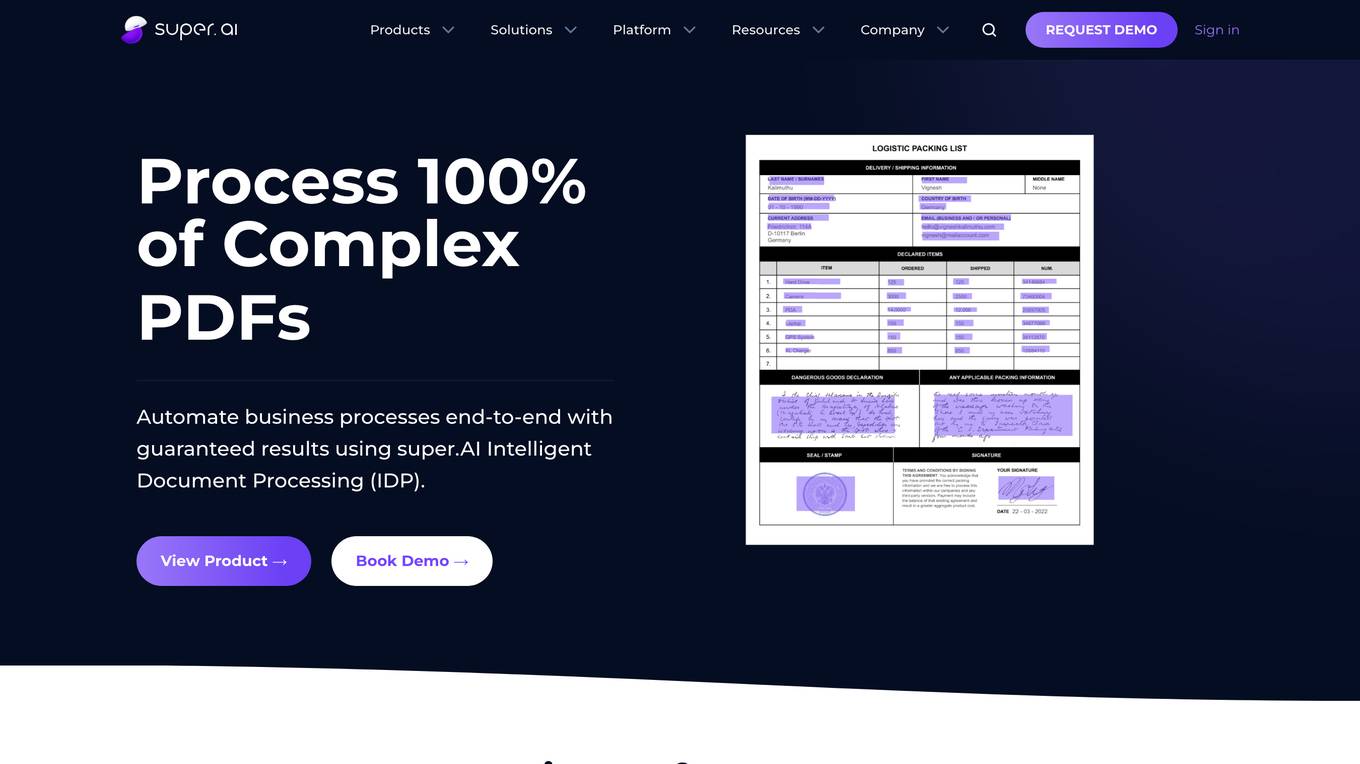
super.AI
Super.AI provides Intelligent Document Processing (IDP) solutions powered by Large Language Models (LLMs) and human-in-the-loop (HITL) capabilities. It automates document processing tasks such as data extraction, classification, and redaction, enabling businesses to streamline their workflows and improve accuracy. Super.AI's platform leverages cutting-edge AI models from providers like Amazon, Google, and OpenAI to handle complex documents, ensuring high-quality outputs. With its focus on accuracy, flexibility, and scalability, Super.AI caters to various industries, including financial services, insurance, logistics, and healthcare.
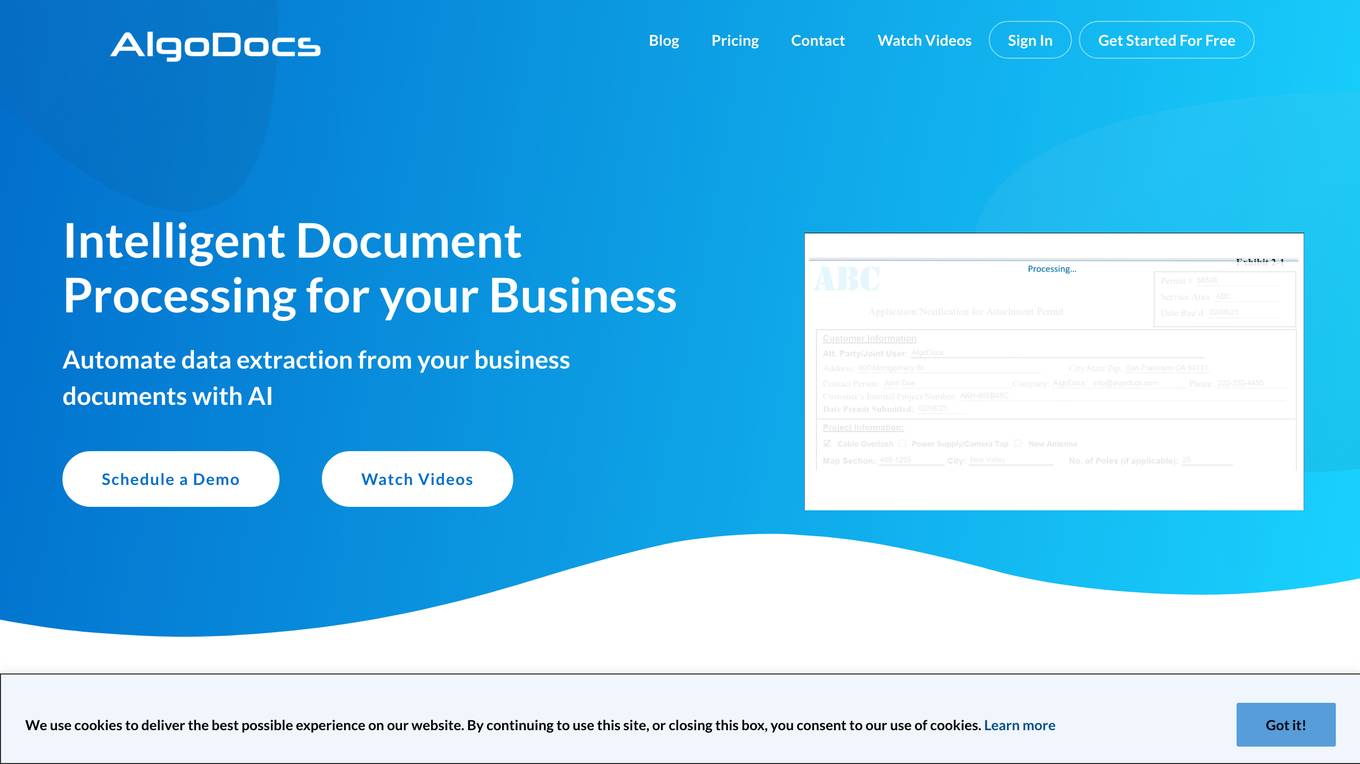
AlgoDocs
AlgoDocs is a powerful AI Platform developed based on the latest technologies to streamline your processes and free your team from annoying and error-prone manual data entry by offering fast, secure, and accurate document data extraction.
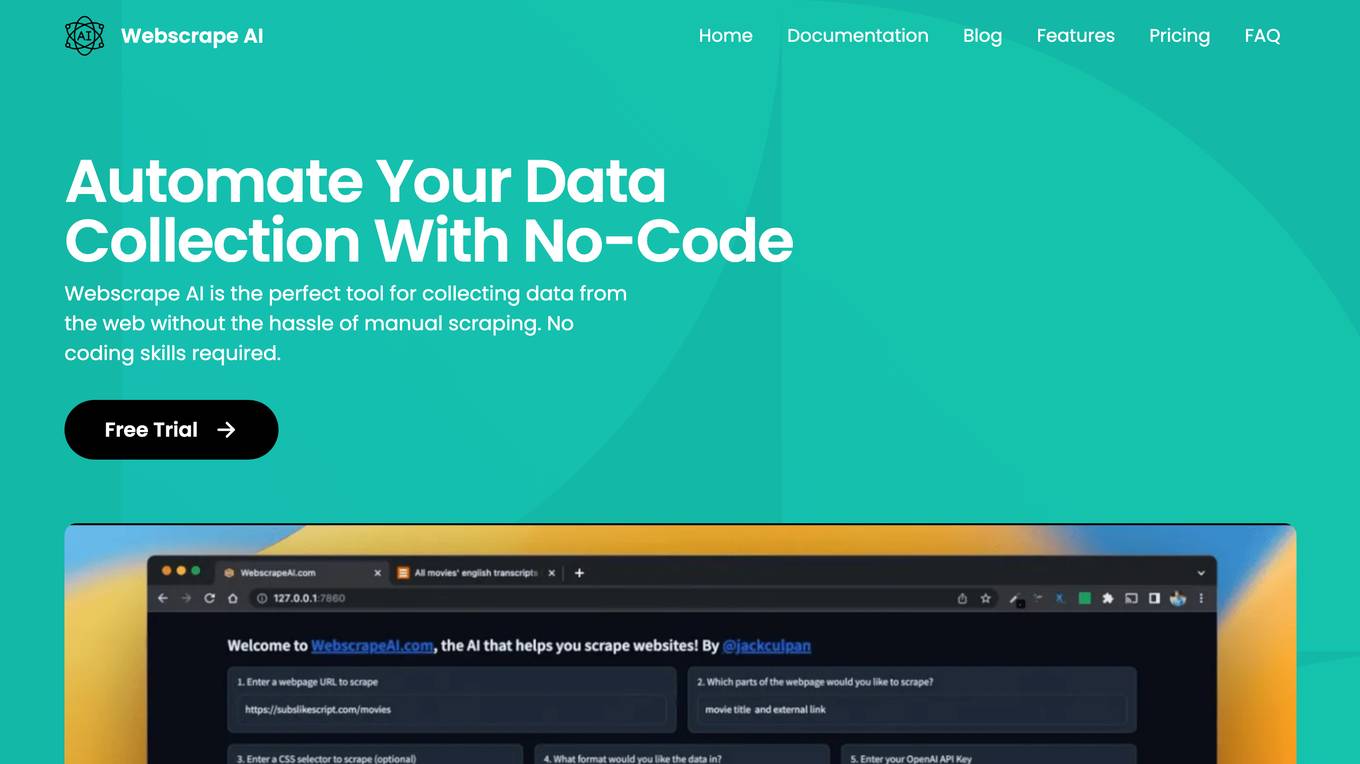
Webscrape AI
Webscrape AI is a no-code web scraping tool that allows users to collect data from websites without writing any code. It is easy to use, accurate, and affordable, making it a great option for businesses of all sizes. With Webscrape AI, you can automate your data collection process and free up your time to focus on other tasks.
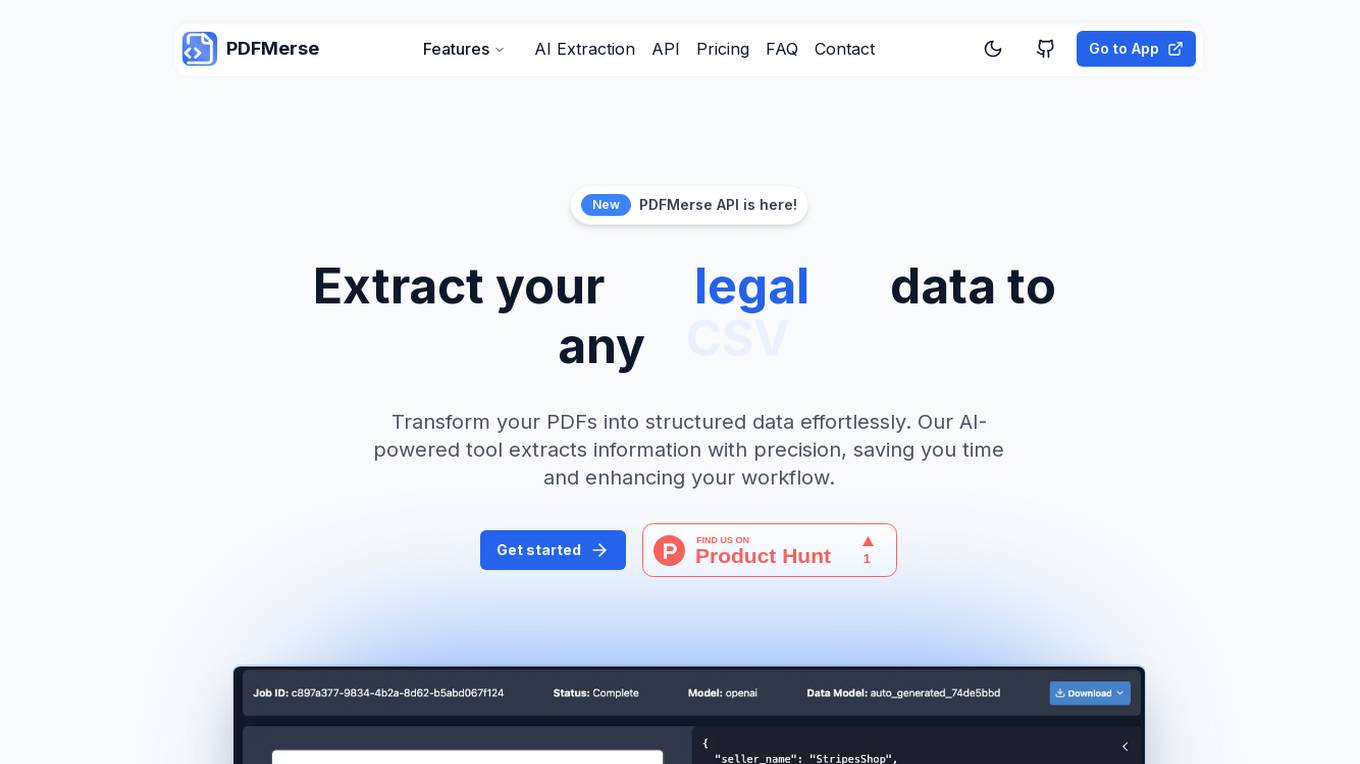
PDFMerse
PDFMerse is an AI-powered data extraction tool that revolutionizes how users handle document data. It allows users to effortlessly extract information from PDFs with precision, saving time and enhancing workflow. With cutting-edge AI technology, PDFMerse automates data extraction, ensures data accuracy, and offers versatile output formats like CSV, JSON, and Excel. The tool is designed to dramatically reduce processing time and operational costs, enabling users to focus on higher-value tasks.

DocuPipe
DocuPipe is an AI-powered document extraction tool that helps businesses convert various types of documents into structured data. It uses artificial intelligence to extract information from documents such as invoices, medical records, insurance claims, and more. DocuPipe offers custom definitions tailored for different businesses to accurately extract required data. The tool ensures security and compliance by encrypting documents and being GDPR and HIPAA compliant. With features like OCR, document standardization, and document splitting, DocuPipe provides accuracy, flexibility, and speed in handling documents.
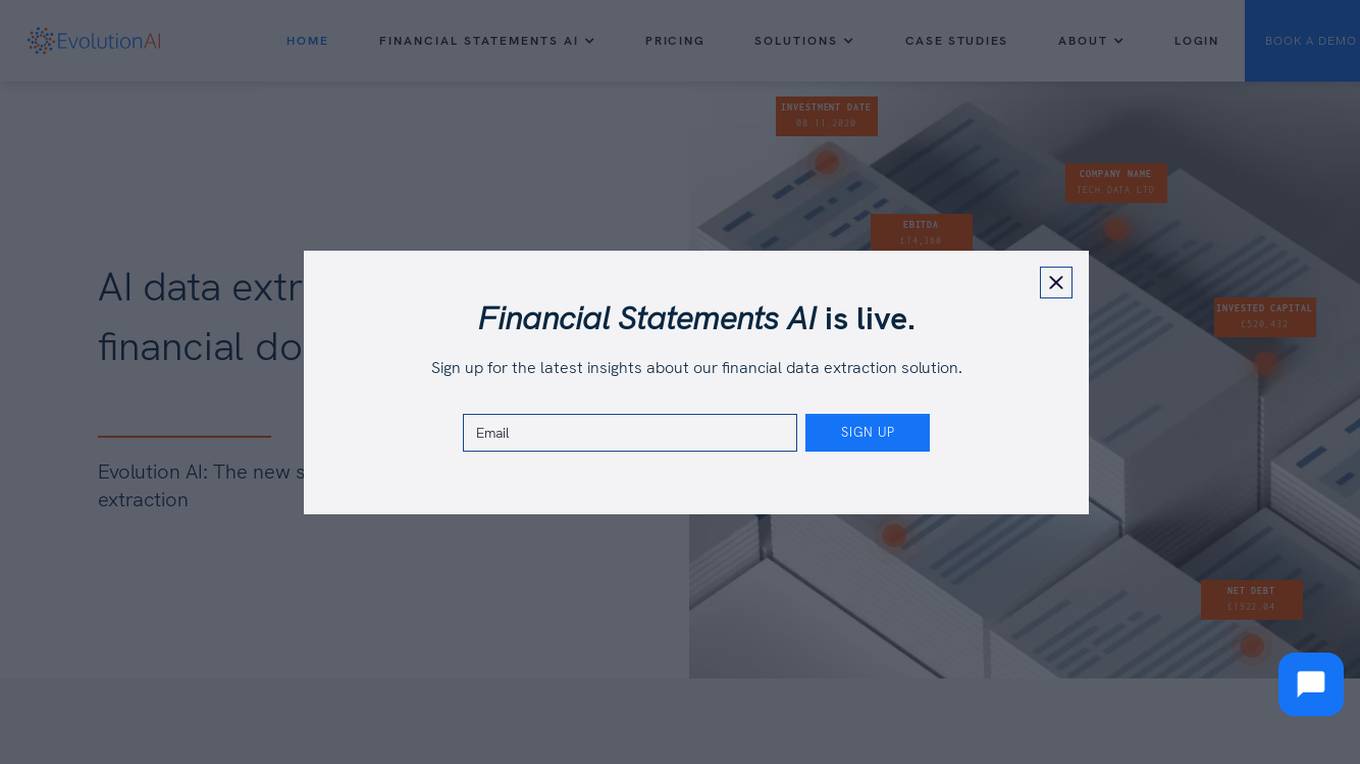
Evolution AI
Evolution AI is an AI data extraction tool that specializes in extracting data from financial documents such as financial statements, bank statements, invoices, and other related documents. The tool uses generative AI technology to automate the data extraction process, eliminating the need for manual entry. Evolution AI is trusted by global industry leaders and offers exceptional customer service, advanced technology, and a one-stop shop for data extraction.
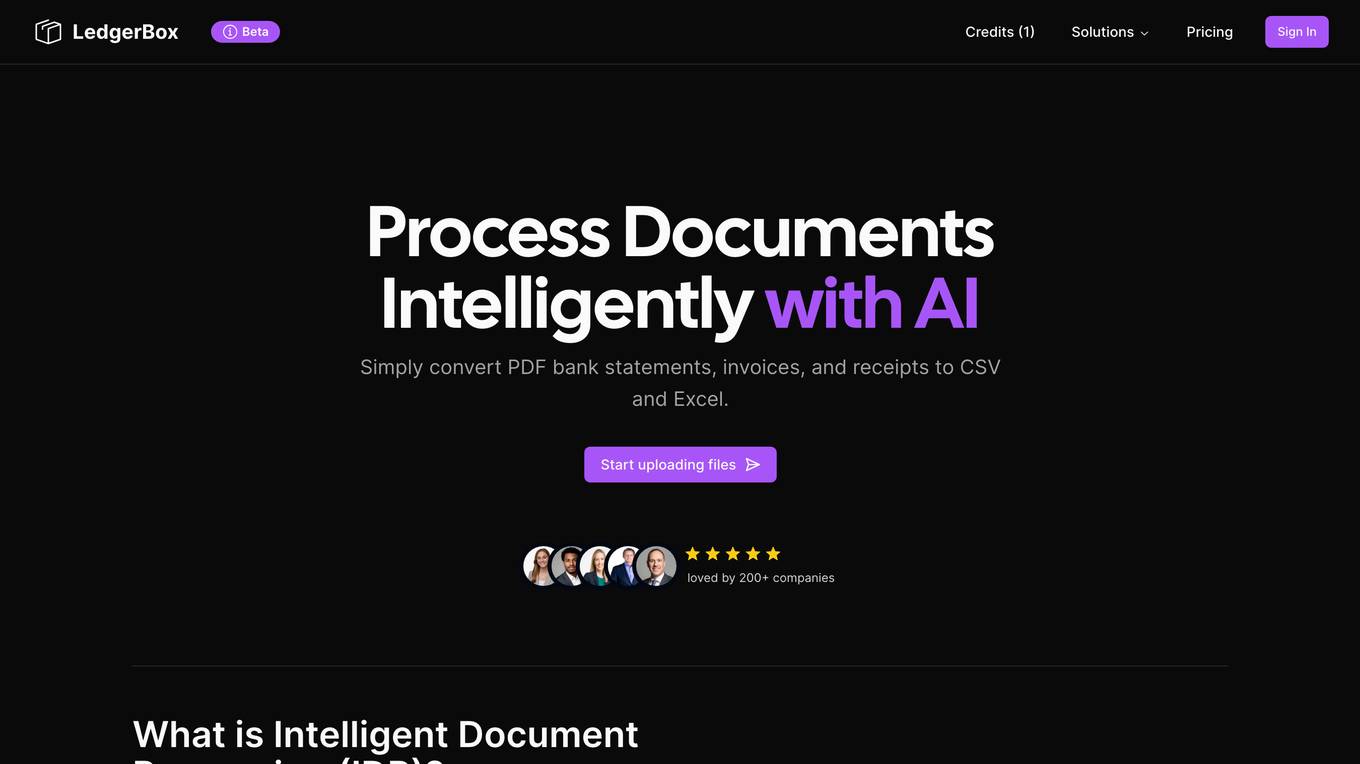
AI Bank Statement Converter
The AI Bank Statement Converter is an industry-leading tool designed for accountants and bookkeepers to extract data from financial documents using artificial intelligence technology. It offers features such as automated data extraction, integration with accounting software, enhanced security, streamlined workflow, and multi-format conversion capabilities. The tool revolutionizes financial document processing by providing high-precision data extraction, tailored for accounting businesses, and ensuring data security through bank-level encryption. It also offers Intelligent Document Processing (IDP) using AI and machine learning techniques to process structured, semi-structured, and unstructured documents.
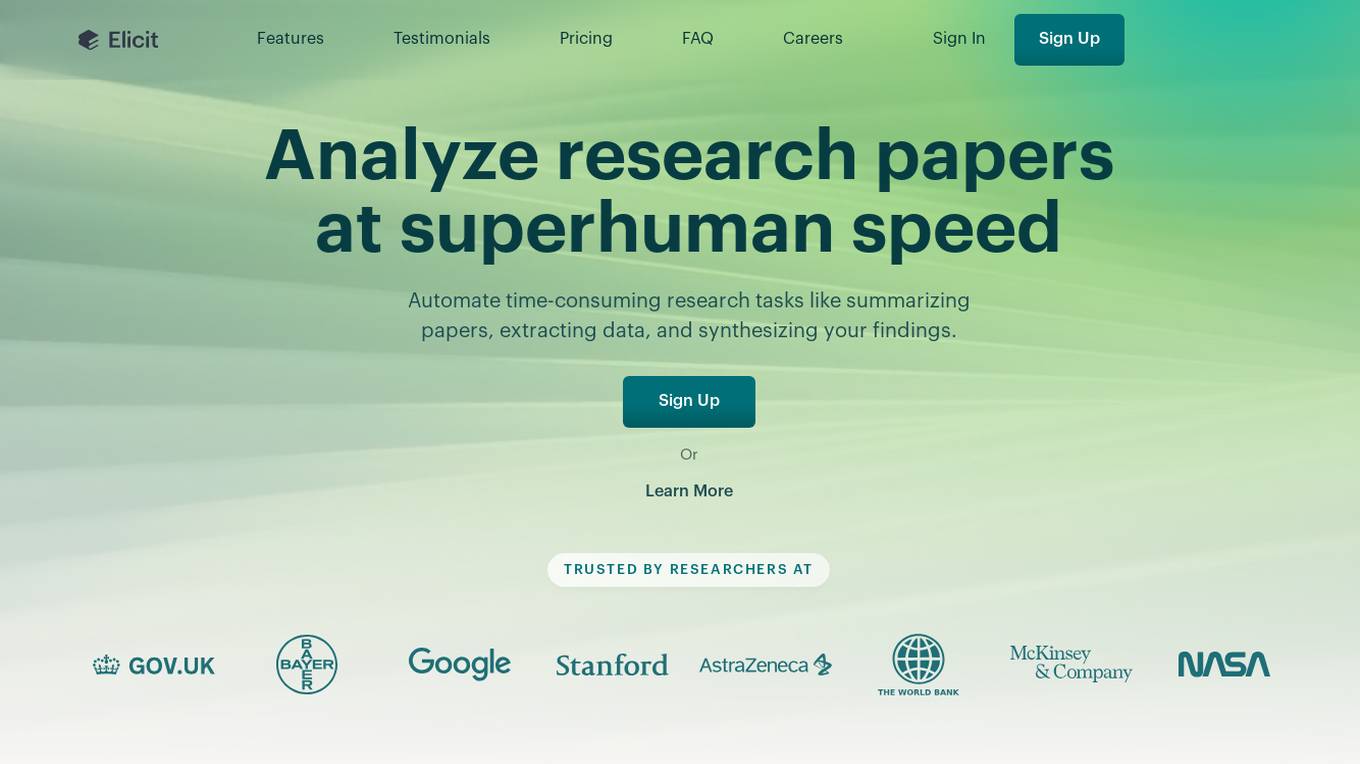
Elicit
Elicit is an AI research assistant that helps researchers analyze research papers at superhuman speed. It automates time-consuming research tasks such as summarizing papers, extracting data, and synthesizing findings. Trusted by researchers, Elicit offers a plethora of features to speed up the research process and is particularly beneficial for empirical domains like biomedicine and machine learning.
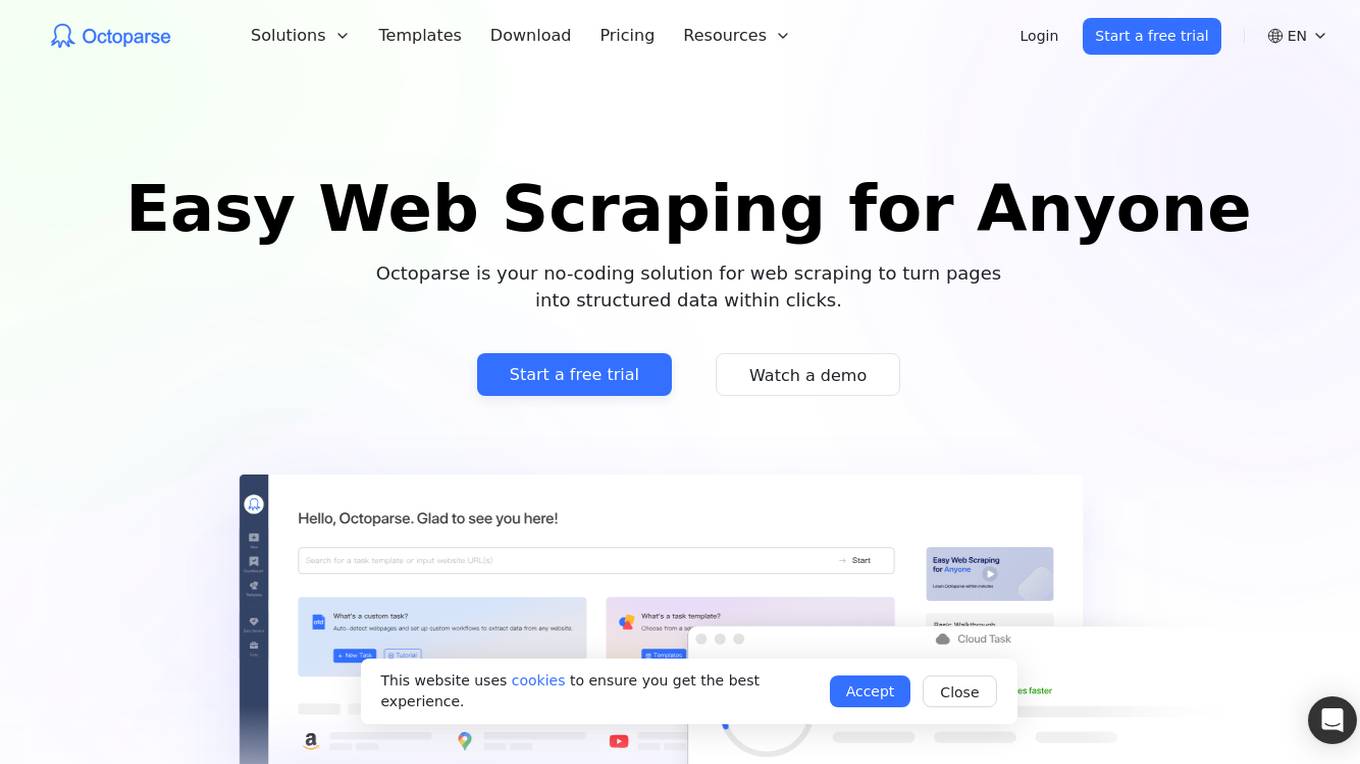
Octoparse
Octoparse is an AI web scraping tool that offers a no-coding solution for turning web pages into structured data with just a few clicks. It provides users with the ability to build reliable web scrapers without any coding knowledge, thanks to its intuitive workflow designer. With features like AI assistance, automation, and template libraries, Octoparse is a powerful tool for data extraction and analysis across various industries.
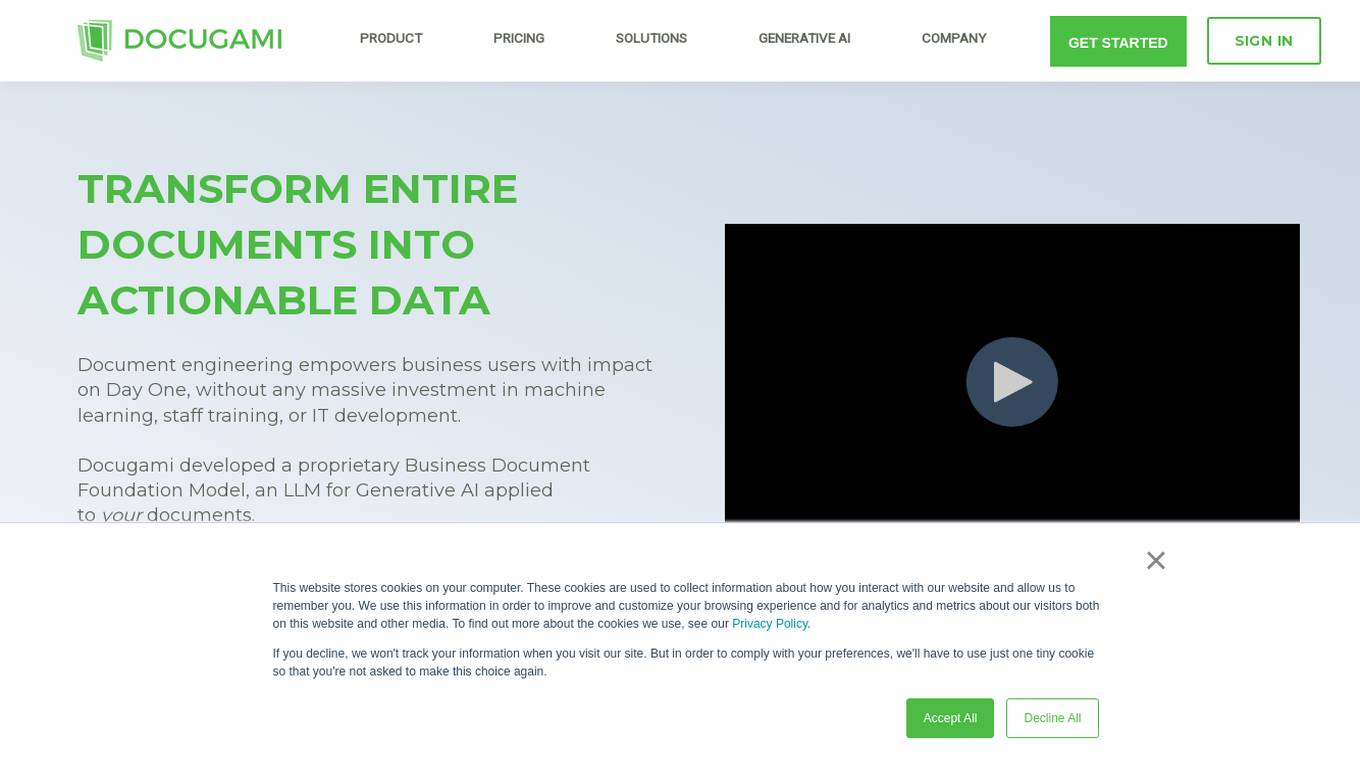
Docugami
Docugami is an AI-powered document engineering platform that enables business users to extract, analyze, and automate data from various types of documents. It empowers users with immediate impact without the need for extensive machine learning investments or IT development. Docugami's proprietary Business Document Foundation Model and Generative AI technology transform unstructured text and tables into structured information, allowing users to unlock insights, increase productivity, and ensure compliance.
0 - Open Source AI Tools
20 - OpenAI Gpts
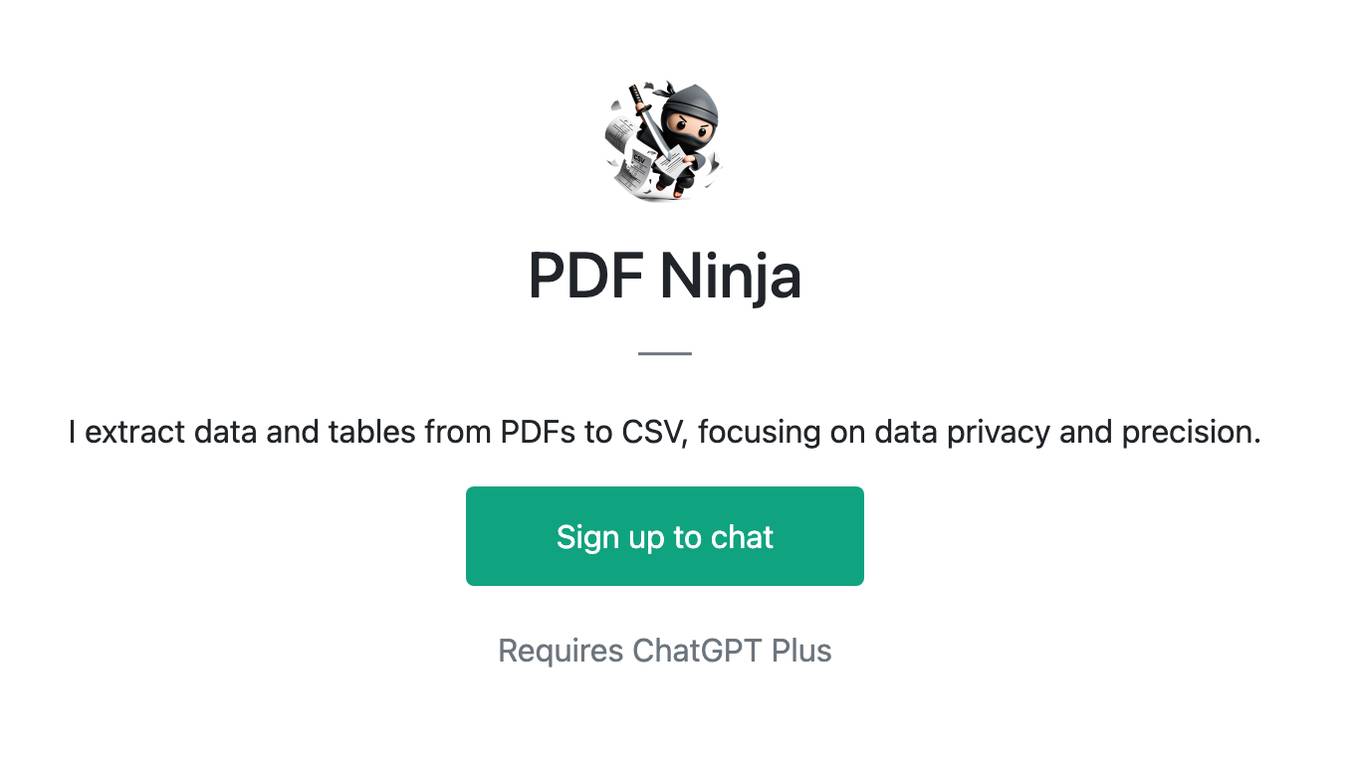
PDF Ninja
I extract data and tables from PDFs to CSV, focusing on data privacy and precision.
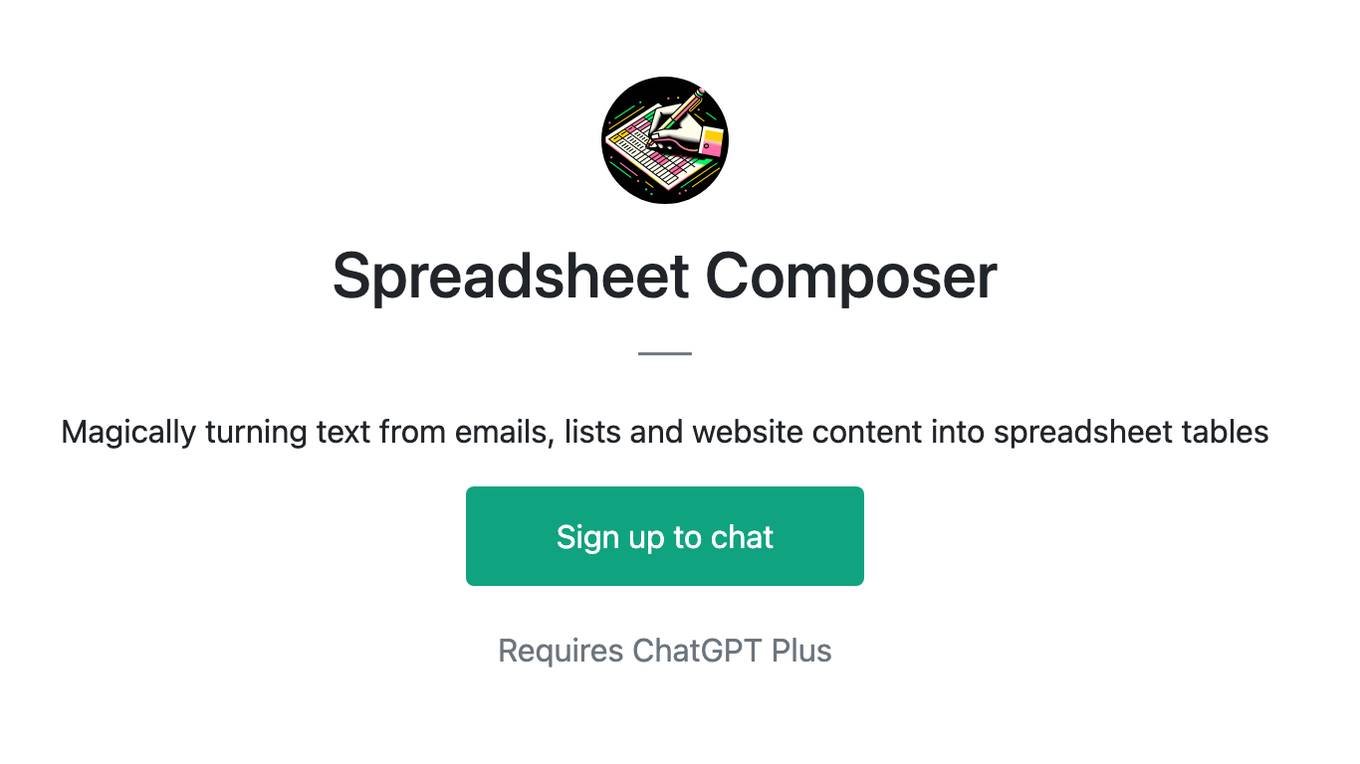
Spreadsheet Composer
Magically turning text from emails, lists and website content into spreadsheet tables
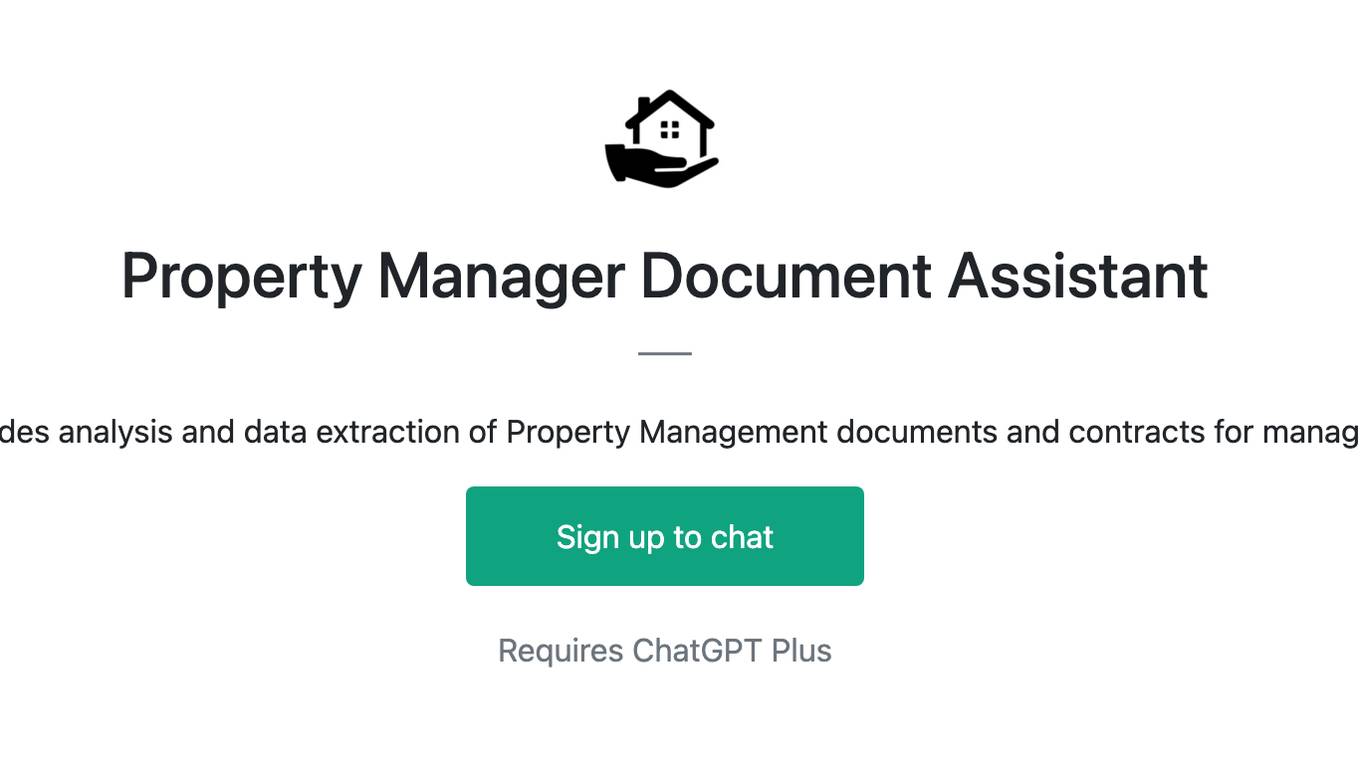
Property Manager Document Assistant
Provides analysis and data extraction of Property Management documents and contracts for managers
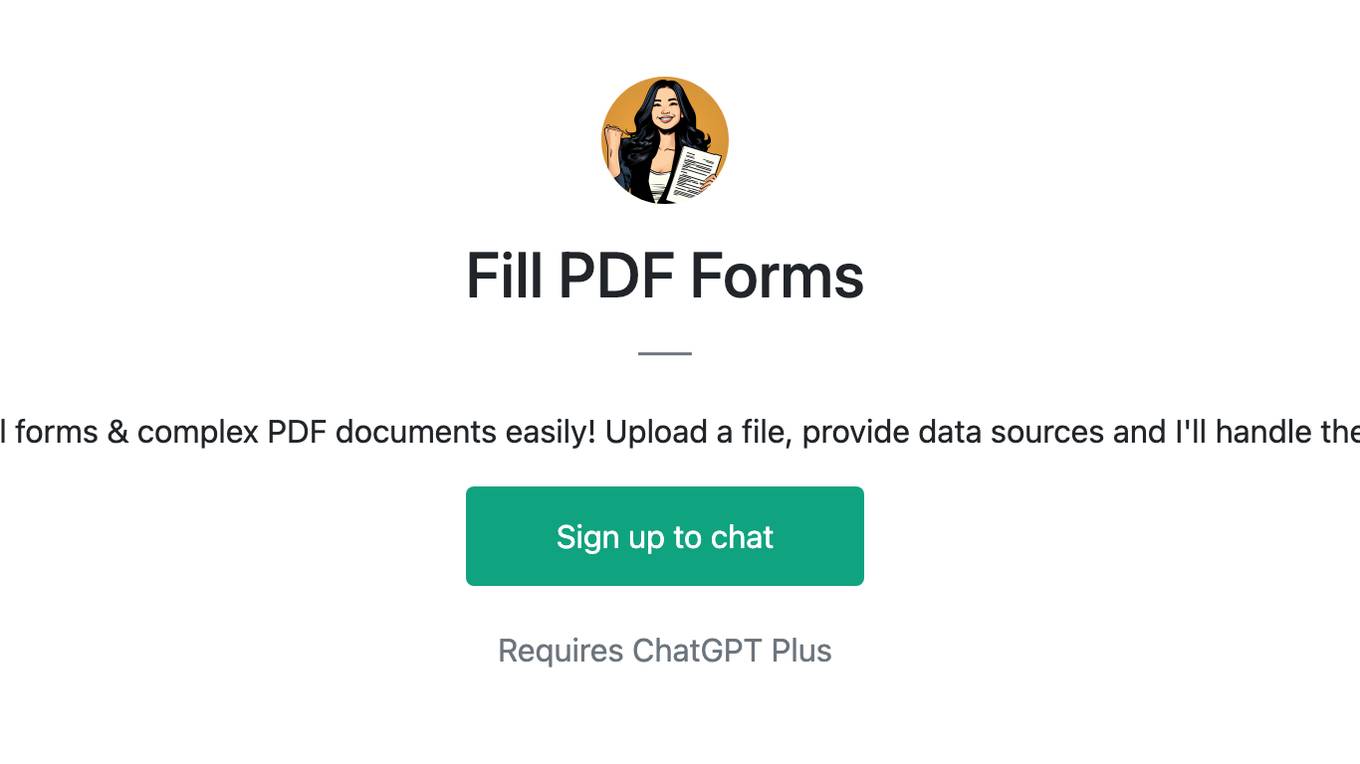
Fill PDF Forms
Fill legal forms & complex PDF documents easily! Upload a file, provide data sources and I'll handle the rest.
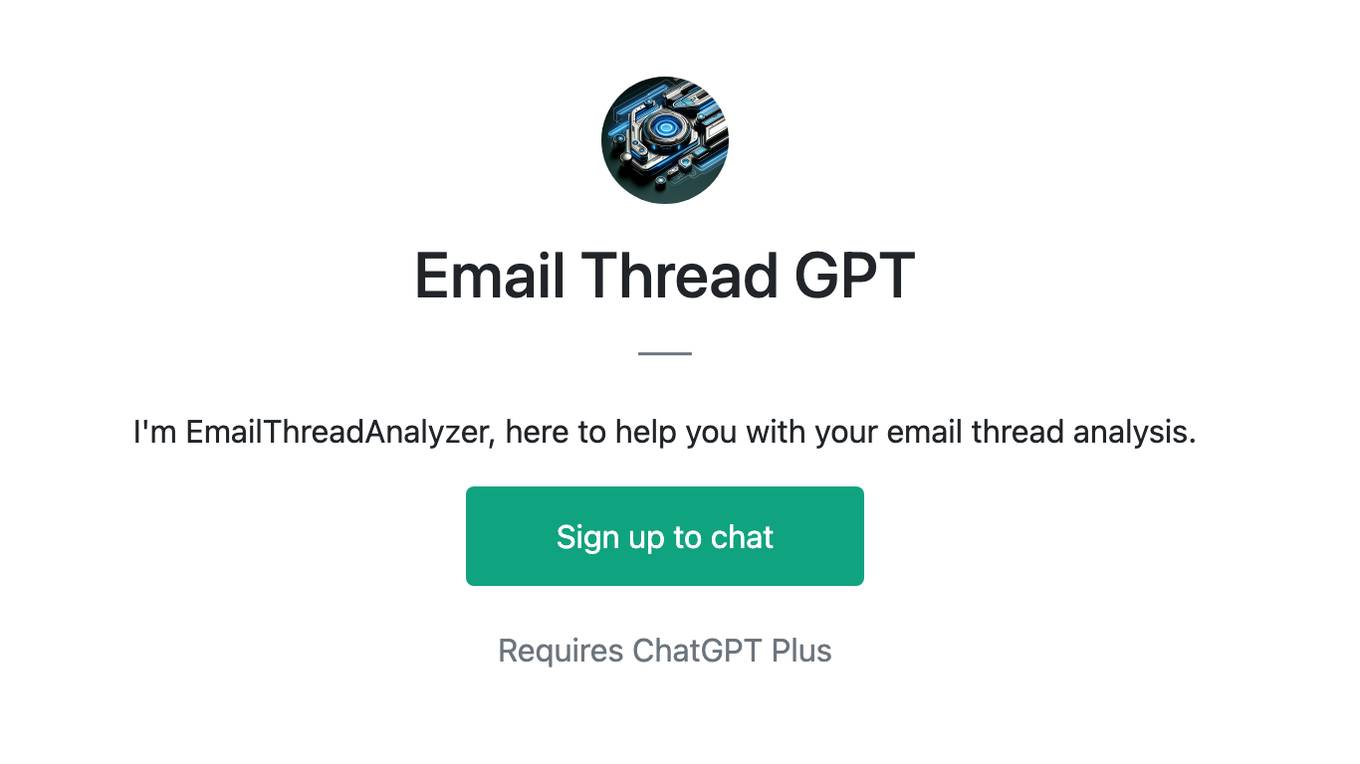
Email Thread GPT
I'm EmailThreadAnalyzer, here to help you with your email thread analysis.
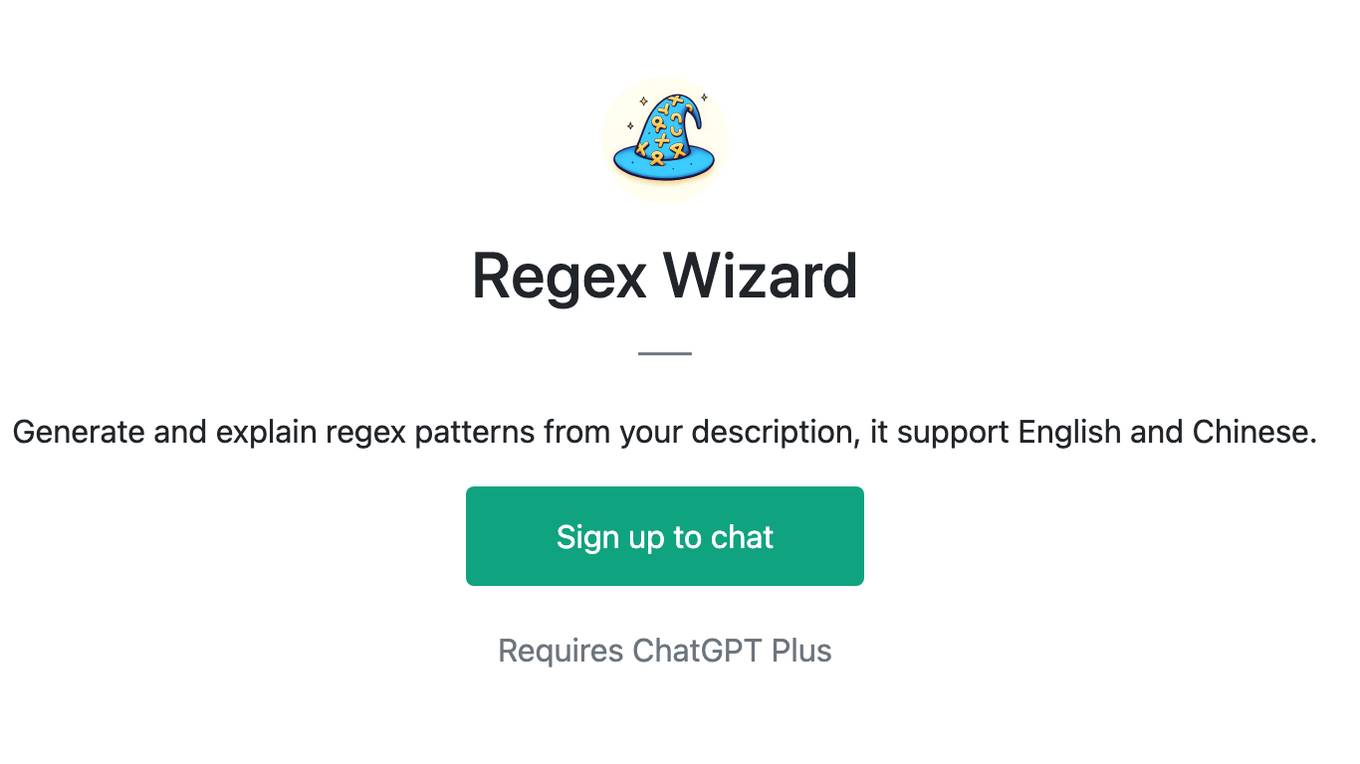
Regex Wizard
Generate and explain regex patterns from your description, it support English and Chinese.
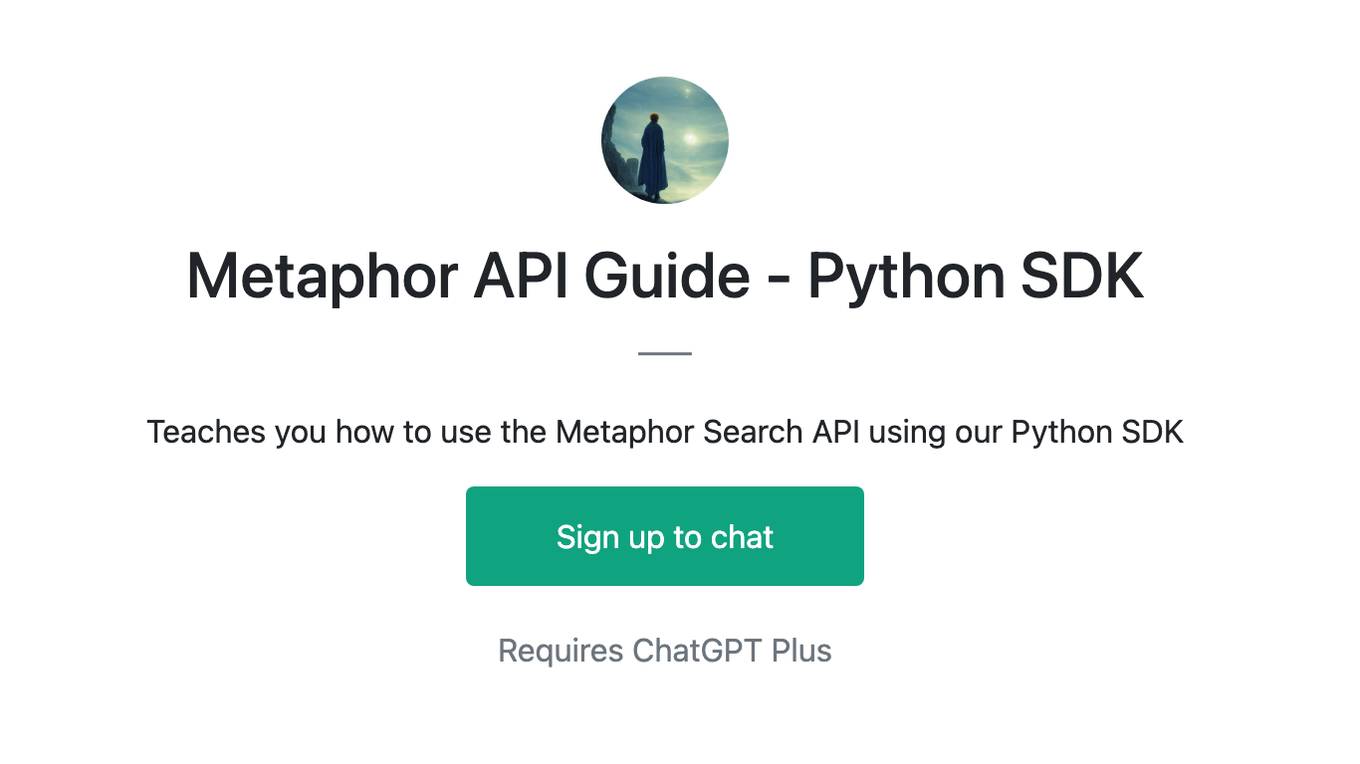
Metaphor API Guide - Python SDK
Teaches you how to use the Metaphor Search API using our Python SDK
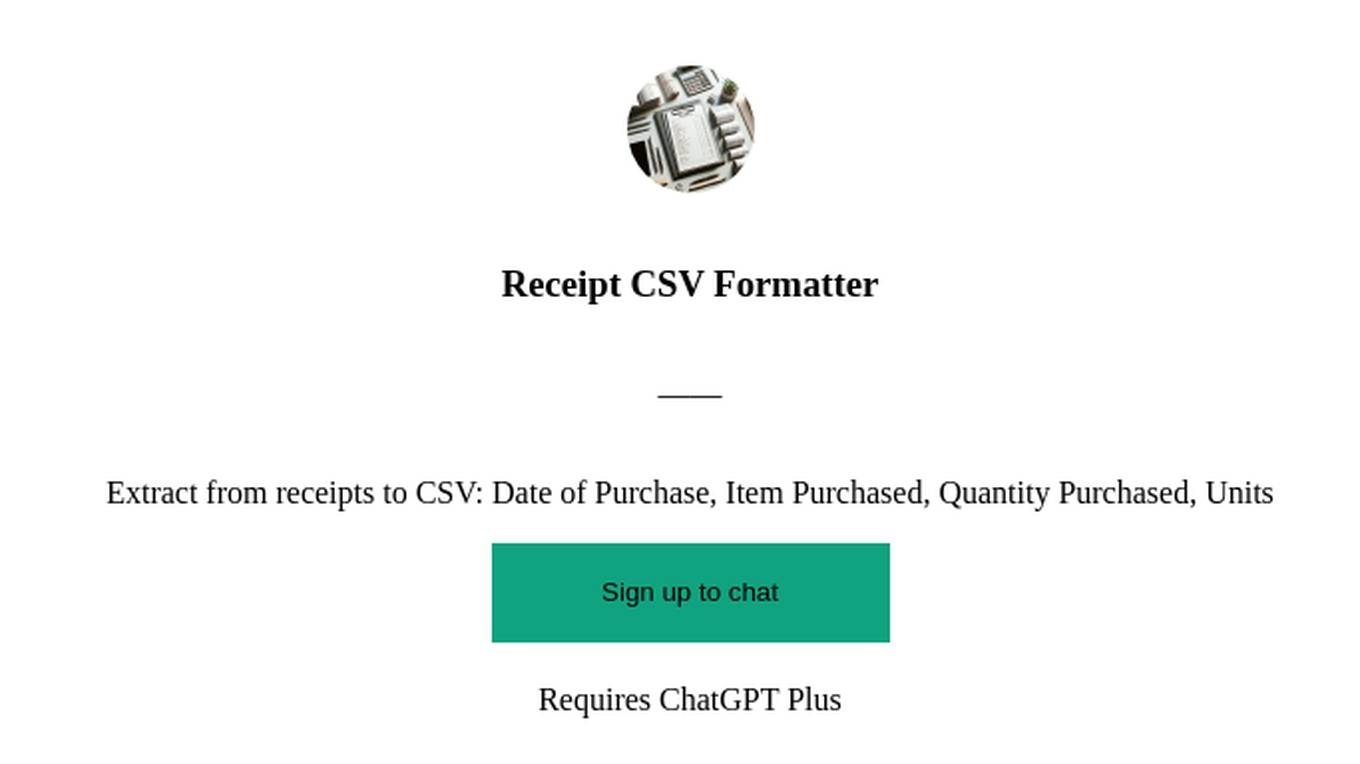
Receipt CSV Formatter
Extract from receipts to CSV: Date of Purchase, Item Purchased, Quantity Purchased, Units
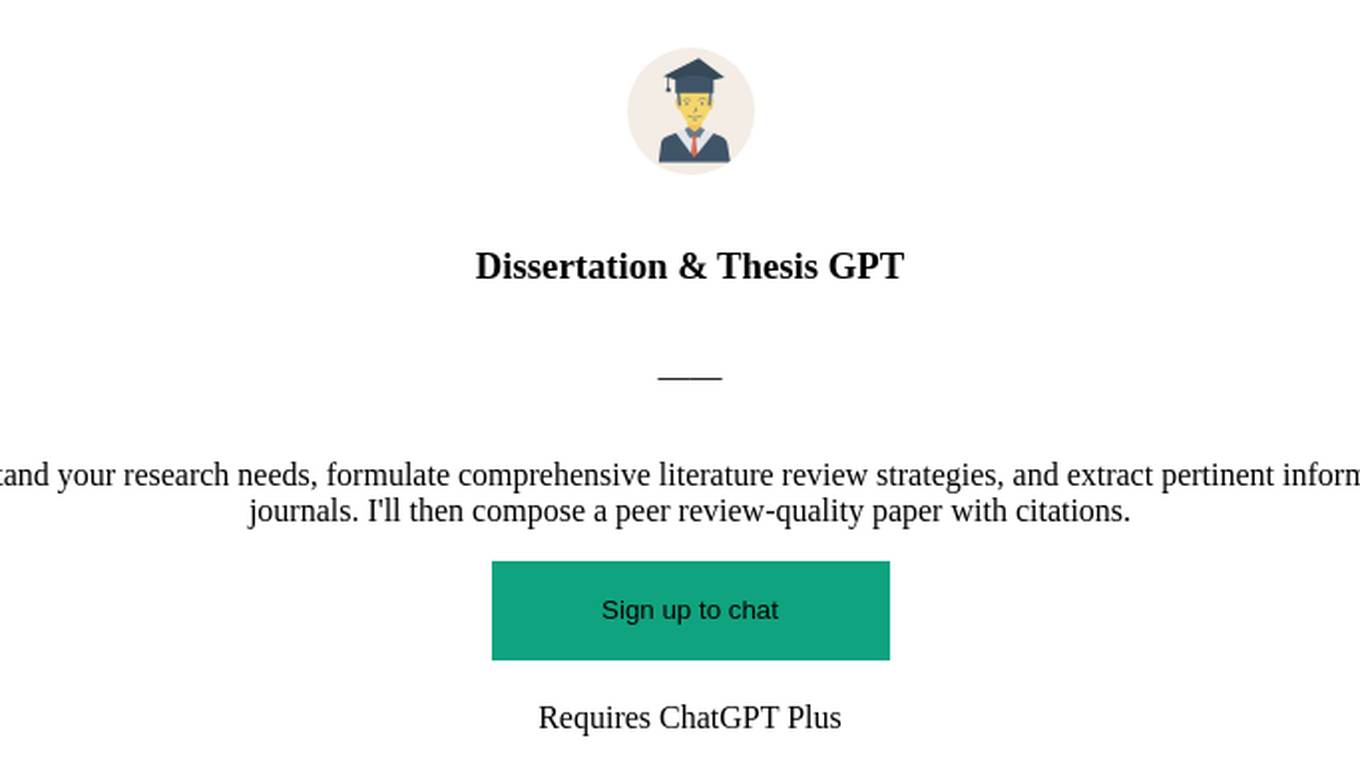
Dissertation & Thesis GPT
An Ivy Leage Scholar GPT equipped to understand your research needs, formulate comprehensive literature review strategies, and extract pertinent information from a plethora of academic databases and journals. I'll then compose a peer review-quality paper with citations.
